#embodied machine consciousness
Explore tagged Tumblr posts
Text
The Neuro-Linguistic Architectures of Tacit Knowledge Emergence in Large Language Models: A Comparative Analysis with Human Cognition and Buddhist Epistemology
Whatever side you are on, we are witnessing a burgeoning of artificial intelligence, particularly in the advancements in Large Language Models (LLMs), which compels a re-evaluation of fundamental epistemological questions concerning knowledge acquisition, especially the elusive domain of tacit knowledge. Photo by Google DeepMind on Pexels.com This short post will delve into the neuro-linguistic…

View On WordPress
#AI#amygdala#Anumāna#apramāṇa#Artificial Intelligence#basal ganglia#Buddhist Epistemology#buddhist wisdom#cognitive science#consciousness#Deep Learning#Digital Humanities#embodied cognition#epistemology#Future of AI#hippocampus#Human Cognition#linguistics#LLMs#Machine Learning#natural language processing#Neural Networks#Neuroscience#NLP#Philosophy of AI#prajñā#pramāṇa#Pratyakṣa#prefrontal cortex#Raffaello Palandri
0 notes
Text
Sharks, orcas, wolves, mongooses, hawks, owls, eagles, big cats, snakes, piranhas, centipedes, preying mantises, scorpions, spiders, squids, komodo dragons, polar bears, sea lions, crocodilians: entire groups of life adapted to eat absolutely nothing but the raw flesh of other creatures. Our society recognizes all of these as iconic killing machines. They all occupy a position in our collective consciousness that teeters between majestic warrior hunter and grim terrifying murder monster. Embodiments of nature's ferocity. Agents of death.
Frogs: an entire group of life adapted to eat absolutely nothing but the raw flesh of other creatures. We think they're silly guys who ought to wear floppy hats perhaps
6K notes
·
View notes
Text
Focus? Put It Where It Belongs During Shifting Attempts
Let me with start with a little footnote about the post that inspired this post: A while ago, I scribbled something about “Expecting To Wake Up In Your CR” and this post is about what makes a lot of people expect to wake up here. And yes, I did read the comments, all of them. Did I reply? No. If you ask yourself why: because the thought of that much social interaction makes me shrivel up like a raisin in the sun. Bite me xD But really, I appreciate the comments… from a safe distance. Anyway, onto the good stuff presumably.
After indulging in a bit of shameless lurking in the community, skipping through comment sections and falling down the rabbit hole of part of the community on reddit starting to say shifting is just lucid dreaming after all, I tripped over a revelation like I trip over my cat late at night. Not really a new revelation, but it gets ignored with an impressive consistency: a whole lot of shifters redirect their focus back onto their CR while trying to shift. Brilliant strategy, isn’t it? It’s like trying to go on vacation while you duct taped your leg to your kitchen table. “But I want to go to my DR!”. Yeah, I’m sure about that, but you also grip your CR like an emotional support blanket reeking of trauma and disappointment. To put it into simple terms: Maybe your focus should be on your DR, not your CR, while attempting to shift. Not on what you are doing tomorrow in your CR. Not if your boss hates you. Not on the wet laundry you forgot in the washing machine (it’s molding, by the way).
Now, before someone decides to throw a tantrum in my inbox: I am not saying to ignore your CR 24/7. That’s unhealthy and mildly melodramatic. You should still try to function. Pay your bills, drink water, feed yourself something that didn’t come from the suspicious looking vending machine down the street. Maybe even water your houseplants (they already gave up on that probably).
But during a shifting attempt? Lock in. Full focus, full sensory override, tunnel vision. Pretend like your DR is the only reality that exists, because for those few minutes you are trying, it kinda is. The problem isn’t the method per se, not that you can’t visualize for shit or that you forgot to script the most unimportant detail about your DR. It’s oftentimes that your thoughts tap dance back to your CR every 0.3 seconds. Enough.
Most methods make you embody your DR self since 2018, right? So would your DR self worry about the bills in this reality or about Karen from HR? Probably not. Stop pulling yourself back to the reality you are trying to leave. When you try to shift, be it for 10 minutes or 45 minutes, your DR deserves your undivided attention. Smell the air, hear the sounds, imagine waking up in your DR and having it be so painfully normal that your CR feels like a dream.
Because you? You are not your job, not your dentist appointment, not the expired sushi in the back of your fridge you said you would throw out two days ago. You are consciousness, awareness, able to shift realities… and you let google calendar dictate on which reality you focus on? A bit disappointing. But you can do better.
TL;DR:
If you attempt to shift, focus on your DR like you mean it. You don’t owe your CR circumstances a single thought in those minutes. Act like your DR is the only reality that exists. If CR thoughts creep in, just swat them away, they don’t matter. You’re not anchored to this reality, unless you choose to be.
#reality shifting#shifters#shifting#shifting antis dni#shifting blog#shifting community#shifting realities#shiftingrealities#reality shifter#shifting motivation#shifting advice#shiftblr#desired reality#shifting tips
161 notes
·
View notes
Text
The things Charles touches in Hell
Everyone run and look at @qwanderer's amazing gifset of the things Charles touches in hell that inspired this meta!!!!
TL;DR Charles' journey to get Edwin is not just retracing Edwin's steps following the maps in the notebook but also on some level specifically reflects the doubts Charles holds about his own capacity to be a good person (and, extrapolating from Edwin's confession, a worthy romantic partner for Edwin in the future). Everything Charles touches in Hell (the mirror in Limbo, the bell, the lock, the claw machine + Maxine grabbing him on the stairs) is designed to sow doubt in Charles - incidentally, much like Orpheus experiences doubt on the journey out of Hell with Eurydice.
-
The mirror
The mirror shows Charles his reflection, which he hasn't been able to see since he died. Jayden said in a Cameo that when he acted in this moment he was embodying Charles giving himself a pep talk about saving Edwin - so he's thinking about whether he is different enough from his father to be able to pull off this rescue, whether he's capable of it.
The mirror also reminds him that, being corporeal in Hell, he doesn't have the capacity to mirror-hop to Edwin, which would have been the easiest way to get to him. It's a tool he'd have had as an incorporeal ghost, a tool that he lacks in Hell. The mirror highlights Charles's need to be Useful to his loved ones and the doubt that if he isn't capable of being useful (especially in rescuing/protecting them), he isn't loveable. Later he says to Edwin "Well, I'm here now," and is able to use the tools in the bag of tricks to distract the doll spider and get Edwin to safety.
And though I don't think Charles is as consciously aware of this bit, the mirror's also a bit of a metaphor for Charles' people-pleasing and how Charles effaces himself in favor of his loved ones. Charles isn't able to be seen in reflections normally, as a ghost, just as he puts the comfort and mood of others above showing his authentic feelings/frustrations, so he isn't "seen" in those relationships. In the mirror in Hell, he can see himself, for the first time in over three decades, and it echoes a fear/doubt that if he shows up fully present in a relationship, romantic or otherwise, he will take up too much space for himself, or people won't like what the see when he is visible.
The bell
The bell speaks to Charles's doubts about impulsivity and its unintended negative consequences. Charles' on-the-spot impulsive decisions are a theme throughout the show - he identifies himself as "the one who does shit like this" in the pilot when possessing Esther. And he compensates for or offsets these things really successfully with resourceful thinking (see: the enchanted jar to replace the sprites' smashed vessel, etc.), and his quick thinking is a huge strength. But the bell here is an example to Charles of a time his impulsivity hurt others, even without him realizing.
Charles and Edwin have an exchange about it: "What about the bell?" "No - it hurts them." Charles experiences direct proof that his impulsive action caused harm to others that he can't fix or soothe, and this moment leads directly into Charles slowing down to take time to process/figure out his feelings for Edwin during the staircase confession rather than impulsively saying he was in love back right away. The bell reflects his fear of how his impulsivity could be a hurdle or liability in his relationships. The bell can also represent the fear that even something that typically makes Charles an asset to Edwin, a strength or a positive, can become something harmful if Charles isn't careful. It's the doubt that Charles' quick thinking, which complements Edwin's more regimented nature and desire to always "have a proper plan in place," could have an unintended harmful shadow side if Charles allows it to, so that he can't trust himself.
Also, the ringing of the bell that is meant to summon someone, much like the mirror, also speaks to Charles' desires to take up space and be perceived by others, and ties back to his doubt that he might take up too much space in a dynamic with someone else. Charles has missed being visible and living, wished to be "seen by someone his own age who's alive." The 'attention' piece might reflect Charles' occasional showiness - which became comfortable over years with Edwin, but which while alive he probably used to associate with negative consequences for himself for taking up 'too much space' or otherwise putting himself in a position where his dad or his peers would 'cut him down to size,' so to speak.
The ringing of the bell at a counter is, in theory, used to seek attention or service from someone, which would also mean Charles knowing what he wants in order to ask for it - and, in a relationship, being able to articulate his desires and needs. It would mean Charles subverting his usual way of being where he makes sure others have everything they need, to prioritize his own wants and needs. It represents his doubt of his ability to be vulnerable in a relationship.
The lock
Irene's phrasing "manipulate for access" about the lock got me thinking about the idea of Charles being able to pick any lock, having confidence in his ability to do so, and even others having confidence in his skill at it ("Big lock" "I'm sure you can open it"). It parallels Charles being good with people, being the one who "everyone likes […] eventually" because he's a "good sort of chap" - but also makes me think it reflects a fear that others will be taken in by the façade of affability he takes care to put on for others' comfort, and make themselves vulnerable to him only for him to hurt them. The classic sort of not-wanting-to-continue-the-cycle-of-abuse type fears.
The bell also highlights Charles's differences from David (who Crystal says "must have lied to [her]" to get her to "let him in" to possess her, as Edwin put it in that same scene). Charles doesn't actually manipulate people for access to their bodies, but it calls back to the doubts he experiences in 'The Case of the Two Dead Dragons' about being compared to Crystal's ex/Brad and Hunter in how they exploited women. The lock also speaks to the doubt that once he has actually gotten someone to like him, or if he were to enter into a relationship with Edwin, they're only there because they've been 'taken in.' Charles knows how to be a "cute distraction" to others or a temporary fling, he doesn't think people should be let in to see the dark emotions at the depths of him that he suppresses. The lock is a bit tied into the claw machine, I think.
The claw machine
The claw machine is associated with grabbing prizes and reflects Charles' self-doubt in general and the ways he seeks praise. It speaks to his issues with feeling fundamentally deserving of love and the fear/doubt that he doesn't actually deserve the "prizes" he gets (being praised by others, or receiving Edwin's love without any expectations or conditions).
It's also a game, and in those types of claw games there's usually a lot of maneuvering the claw, trying over and over and failing to grab the prize, "falling short" if you will, even despite having skill at the game; the prize might slip free and be lost, etc. - much like how Charles always felt he was falling short of his dad and never reaching making him happy/proud ("no matter how nice I was, or how good at sports I was"). When it comes to Charles + games: Cricket was a game Charles excelled at and yet never quite made the mark of his father's approval no matter how many trophies he got, etc.
The claw machine can also be a metaphor for the cycle of abuse. It speaks to the idea that Charles was caught up in a sort of 'rigged game' - an endless cycle of abuse in which his abusers held physical, emotional, social, or systemic power over him and he would inevitably end up 'losing' the game with its uncertain rules and would be hurt (by his dad/his peers or by society). While alive he was playing the assimilation/likeability game with his friends for the prize of feeling belonging, only for them to turn out to be the ones to kill him.
(Notably, the way out that Edwin ended up taking was a hole smashed in the wall behind the claw machine, bypassing the game entirely - and Charles retraces the path Edwin took. This shows how Charles doesn't need to actually keep trying and failing to reach an unattainable/shifting goalpost in order to be loved unconditionally or be deserving of love. It also foreshadows he can take a different path that would break the cycle of abuse, that indeed he is already breaking it.)
+ Maxine
Bonus, since this one touched him and not vice versa - Maxine grabbing Charles on the stairs and knocking him off-balance. In life Maxine was a stalker, an abusive person who was invasive towards and controlling towards her romantic interest. Ultimately she became physically violent and tried to kill Jenny. This has been spoken on in other metas, but much like the Devlin House reflected his fears of becoming like his dad, Charles encountering Maxine on the stairs reflects Charles' basic fears of continuing the cycle of abuse in a romantic relationship and emotionally or physically hurting his partner by being overbearing/controlling/violent. Maxine being present on the staircase during the confession also underscores this doubt in Charles.
170 notes
·
View notes
Text
Unpopular opinion:
The Fall of the Night Sentinels shaped the Slayer more than the loss of his family or Daisy. Don’t get me wrong, they were equally as tragic and traumatic. The death of his wife and small child, and that not even a harmless little pet bunny could survive the rampage definitely gave the Slayer a firsthand of Hell’s cruelty. They are the major drive of his constant hatred towards demons. But what truly made the Slayer who he is later on, is his years of stranding in Argent D’Nur, his life among the Sentinel ranks and their ultimate end that left him alone in Hell, again.
The Night Sentinels were more than a brotherhood to the Slayer. They were his second family, his attempt to start over, to rebuild a sense of purpose and connection after losing everything back on Earth. The Doom Slayer adopted their tradition and their worship of the Wraiths. He earned his place by going above and beyond. IMO He is more of a Night Sentinel than a space marine at some point. Even after the Divinity Machine treatment he would fight against the Maykr’s mind control, just so he could protect their cities and help in their evacuation.
So, when the Night Sentinels fall: some were betrayed, some corrupted, but all went extinct (The Sentinel army we are seeing with Valen are not even wearing the same armor as the OG, just shows how much their culture have lost in time). so did the Slayer’s last tie to any human bond. From that point forward, he not just accepted his role as a weapon, but embraced the “path of perpetual torment”, because he no longer believes he could be anything more than that.
A central part of the Slayer’s character is that he doesn’t trust leaders. Not his own commanding officer, not Dr. Hayden, not the UAC, absolutely not the Maykrs. He doesn’t serve anyone and if they got in his way, he wasted no time to tell them how much he detested those who sees others as beneath them or necessary sacrifices. The only time he shows any respect is when he kneels to the spirit of King Novik in DOOM Eternal, and damn that speaks volumes.
Even then, he rejected King Novik and Valen’s warning to not go against the Maykrs. He didn’t forgive Valen either, gave the latter no time to sulk in self-exile. And yet he still honors Valen’s request by setting his son’s soul free, and silently accepted Valen’s help in the last stand against Immora.
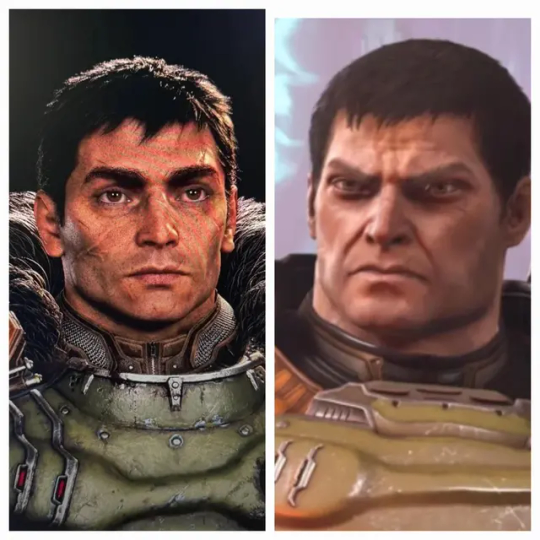
And here I think we really underappreciated this period in the Slayer’s life. In the recent face reveal we see the Slayer after he has spent some time among the Night Sentinels. We see he looked…almost peaceful. There is a certain serenity to it. He has tired eyes from constantly dealing with those demons but somehow remains innocent. That sense of at peace with himself, I believe, comes from the Night Sentinels’ way of life.
Argent D’Nur was a brutal world, and the people adopts a warrior culture because they literally have fought giants for their survival. They live on a planet where apocalyptic natural disaster is just a normal Tuesday. They have more than one moon, that one is RED and clearly visible at daytime. Their gods, the Wraiths, sing to drive people to madness and transform wild beast into bloodthirst monsters. And in the midst of all these, people of Argent D’Nur is deeply bonded with nature, animals and with each other.
The Order of Night Sentinels is the embodiment of that philosophy. They were like a fusion of monks and druids and their trainings would not only be combat but wilderness survival, meditation, fasting, gardening, animal companionship, likely from a very young age. Honoring the dead and directly connecting with metaphysical power would also be as common as a daily routine. The Night Sentinels do not just grow immune to the Wraithcall, instead they see it as transcendence and spiritual clarity.
Their works definitely paid off. Because we could see Night Sentinels do not turn into demons after they are KIA. They linger consciously at the site of their death even when their bodies were dragged away or decomposed, still capable of helping the Slayer one last time, dispersing after fulfilling their duties. Even the corrupted Sentinels AKA marauders were able to retain memories and some remnant of consciousness.
The Slayer has to go through all of the same trials to earn those Sentinels’ trust and respect. And I believe he did. Even the Wraiths that do not grant their powers to the Maykrs accepted the Slayer, and powered his Crucible to fight the Dreadnought in Taras Nabad. I believe these trainings and disciplines helped him tremendously in making sense with his past trauma.
Most importantly, this alien species and possible ancestors of humankind did NOT see the Slayer as just a weapon. They built statues and made relieves of the Slayer fighting by their side. They absolutely adored (and straight up adopted) this angry mute.
I think of what defines the Slayer is that despite all his rage, a large part of himself still longs for affection, nurture and compassion. In many parts of Eternal and 2016 we see the Slayer has so much humanity that he kept only to himself. The last time he got any of those was with the Night Sentinels. To be more precise, before the Divinity Machine turned him into some demigod where he was then separated from them, and was trapped in a pen under constant monitoring from the Maykrs. Despite all that, the Sentinels are obviously still looking out for him, dropping him supplies and rescuing him. We could see in TDA how the Night Sentinels have grown frustrated of how much tortures he suffered under the Maykrs and that might have even planted the first seed of their distrust of the Maykrs.
This is why the fall of the Night Sentinels cuts so much deeper. Of course, I am very biased. But we knew very little about the Slayer’s Earth family. They barely fleshed out but now we are getting stories between the Slayer and his Sentinel bros. These people are more than capable in battle and for the most part, trying to do the right thing as they rejected the Argent Energy once they found out about its source. And they were lost to Hell too.
#ref: argent d'nur#ref: the slayer#doom the dark ages#doom#doom slayer#night sentinels#night sentinel#opinionated#writing log
54 notes
·
View notes
Text
Punarvasu & Swati: Cosmogony, Reality & Consciousness
Punarvasu and Swati are deeply intertwined nakshatras with very similar patterns and themes. Punarvasu's deity Goddess Aditi embodies infinity and vast primordial space. She is boundless and limitless. Swati's deity Vayu is the ruler of air & wind and connected to the life force or prana (or qi).
Both these nakshatras connect to space, infinity, abundance and are known for being wealth giving nakshatras.
Ruth Handler, the inventor of Barbie had Swati Sun & Mercury along with Ketu in Punarvasu
Margot Robbie who played Barbie has Swati Moon & Punarvasu Rising
I had briefly mentioned this in my Tomie post but Swati & Punarvasu's themes are manifest in Barbie because Barbie is not a person, she is a type of doll, and she can be anyone or anything. Barbie is a whole universe into herself, this is the cosmic abundance and infinitude of Swati & Punarvasu.
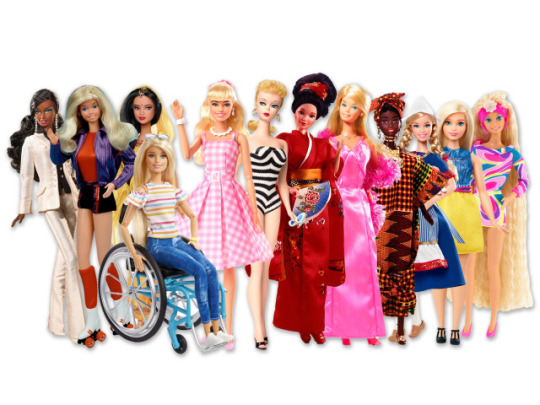
My Tomie post also talks about how Tomie is a Punarvasu so do check that out!!
I have always thought that Punarvasu & Swati are related to time travel which makes sense provided the cosmic infinitude embodied in these naks.
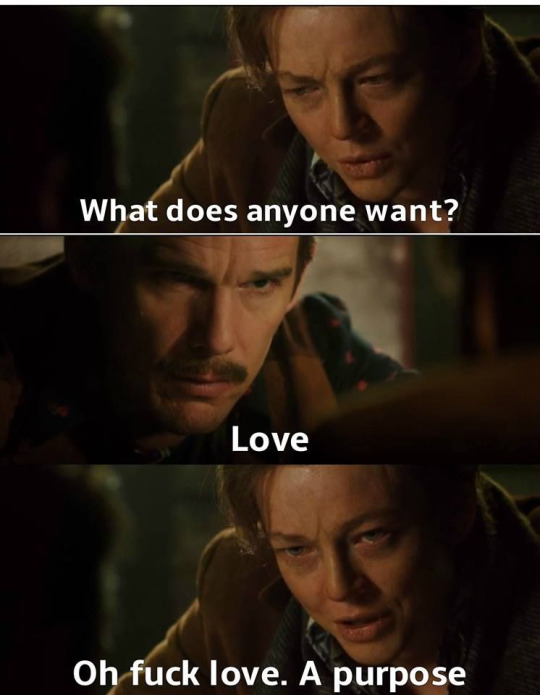
Predestination, a time- travel movie starring Ethan Hawke who is Swati Sun (do watch it, its really good))
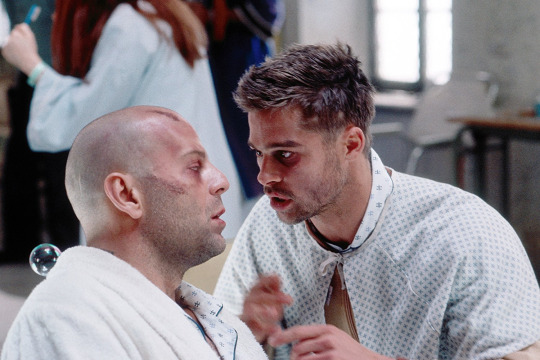
Bruce Willis has been in several time-travel movies, including 12 Monkeys & Looper. He has Jupiter in Punarvasu atmakaraka

The 1960 movie The Time Machine stars Rod Taylor who has Ketu in Swati.
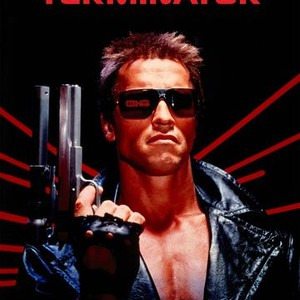
The Terminator movies starring Arnold Schwarzenegger- Punarvasu stellium (mercury, venus & rising). Arnold like many Punarvasus have been in many sci-fi movies that concern the nature of reality, in fact his own autobiography is called Total Recall (he's been in a movie of the same name and its about what is real and what isn't- peak Punarvasu behaviour I must say)

Planet of the Apes stars Charlton Heston who has Punarvasu Moon, Swati Rising

Frequency stars Dennis Quaid who has Punarvasu Moon & Ketu
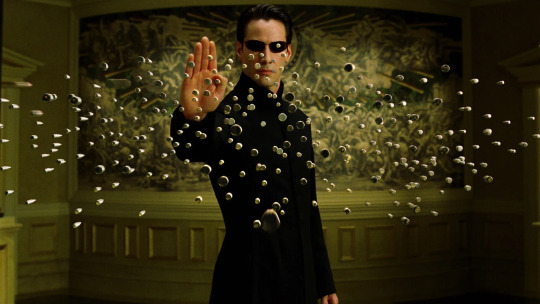
The Matrix/ The Lake House/Bill & Ted's Excellent Adventure are all time travel movies starring Keanu Reeves who is Punarvasu Moon.
Its interesting to me that many Punarvasus have often spoken about "creating your reality".
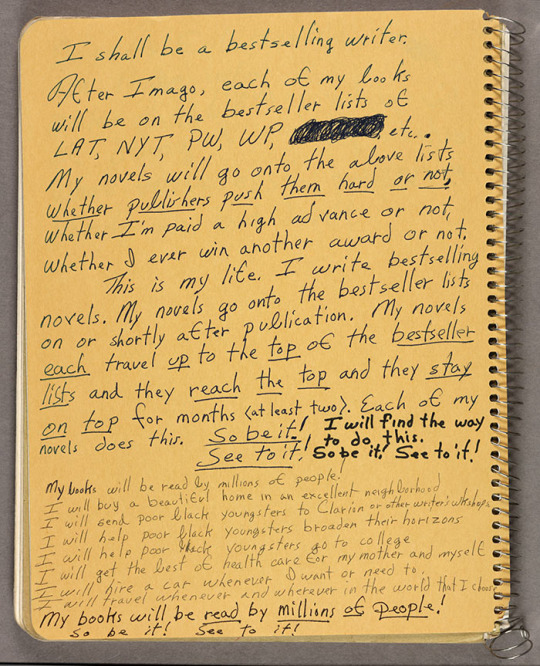
Octavia Butler, the writer has Punarvasu Rising (the themes of this nak is vv apparent in her work but I'll perhaps discuss that in a future post) and this^^ is a page from her journal that she wrote in the 1970s wayyy before manifestation was a "thing".
Butler grew up very poor in an era of racial segregation and suffered from dyslexia. She overcame great odds to become one of the best-selling sci-fi novelists of all time.

Miranda Kerr- Punarvasu Moon often talks about the power of our thoughts and has referenced writers like David R Hawkins (who talks about the nature of consciousness) a lot. Here's a quote from her book.
“Start each day by saying to yourself: ‘How amazing it is to be alive! What a wondrous feeling I have inside! I am awake, healthy and full of joy!’ Visualise every cell in your body being filled with vitality, health and love.”- Treasure Yourself
Miranda grew up quite lower middle class on a farm in rural Australia and then went on to become one of the best known models in the world and is now married to a billionaire.
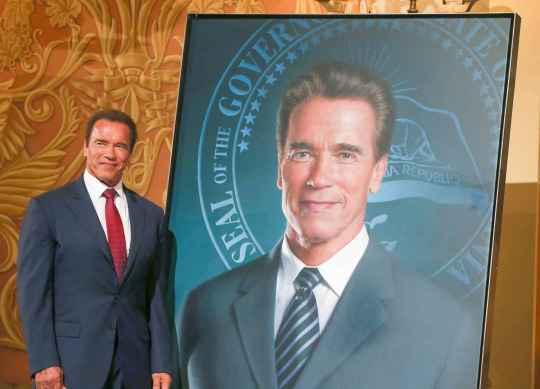
Arnold Schwarzenegger- Punarvasu Rising (and stellium)
If you've read his autobiography or watched his Netflix documentary yk that he talks constantly about the power of the mind, having focus etc
He grew up in a small town in Austria (after WW2) with an abusive father and also suffered from dyslexia. He then went on to become one of the biggest movie stars of all time and was the Governor of California???
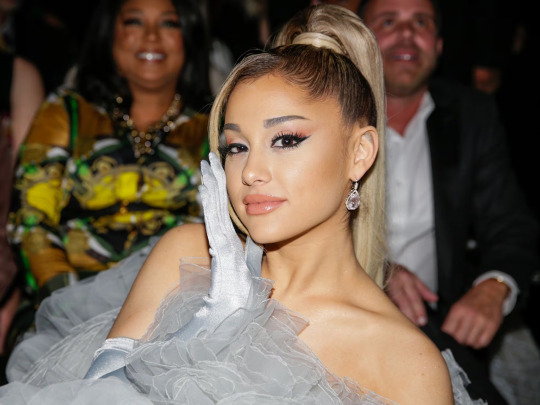
Ariana Grande- Mercury in Punarvasu sings about manifestation and law of attraction quite a lot. She was a side character on a Nickelodeon show and 10yrs later she's one of the biggest pop- stars.
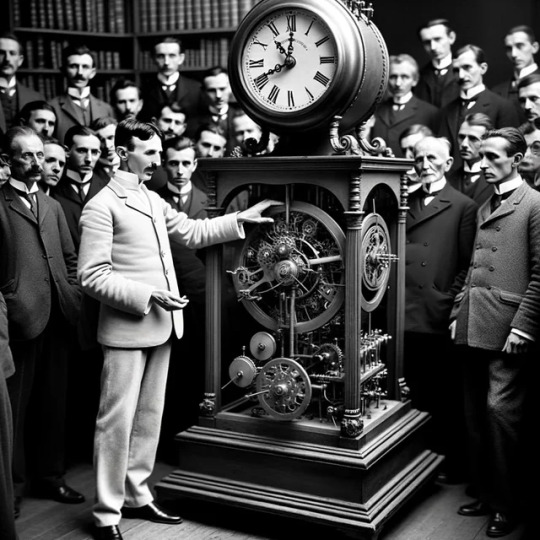
Nikola Tesla, Punarvasu Sun & Venus
Tesla discovered automatic current transmission & generation technology which is responsible for modern day wireless connections. He's also super Punarvasu core as a person, he had eidetic memory, apparently did not sleep more than 2 hours per night, was interested in Vedic cosmology & philosophy (he used terms like akasha & prana to describe the relationship between matter & energy). I find this quote by him very interesting, "To me, the universe is simply a great machine which never came into being and never will end". I personally don't believe in the Big Bang theory and I'm inclined to believe that the universe has always existed instead of having come into existence at one point, which imo, is a very anthropocentric idea. Tesla's quote is a reflection of the boundless nature of Aditi, who is the cosmic mother, she embodies creation.
fun fact: Elon Musk who named Tesla after him is Punarvasu Mercury & Rising.
Interestingly enough, several decades before the Big Bang theory gained mainstream acceptance and was studied by scientists, Edgar Allan Poe published a lecture/essay on the matter titled Eureka: A Prose Poem in 1848 (!!!!). He had Swati Rising
Can you believe that he, a man with zero scientific background essentially came up with ideas that would serve as the basis of 20th century scientific discoveries & theories??? That too in 1848???
Analysis of Eureka's scientific content shows congruities with modern cosmology, stemming from Poe's assumption of an evolving Universe and it also contains ideas about the unity of space and time, the mathematical equality of matter and energy, the velocity of light and a rudimentary concept of relativity, black holes (including one at the centre of our Milky Way), a "pulsating" universe that renews itself eternally, and other universes in other dimensions with different laws of nature.
A writer & poet who dropped out of college came up with all that in 1848. Swatis & Punarvasus have the ability to understand complex concepts, systems, and processes intuitively. This is why they are so good at analysis, strategy and planning. They have a futuristic vision because its easy for them to see how current events will affect other things and manifest in the future. Those who don't have these placements will struggle to understand what this is like because most of us aren't endowed with this sort of ability to see the trees and the forest all at once.
Interestingly, the scientist Georges Lemaître who first proposed the "Big Bang theory" of the origin of the universe, calling it the "hypothesis of the primaeval atom", and later calling it "the beginning of the world" is a Punarvasu Sun.
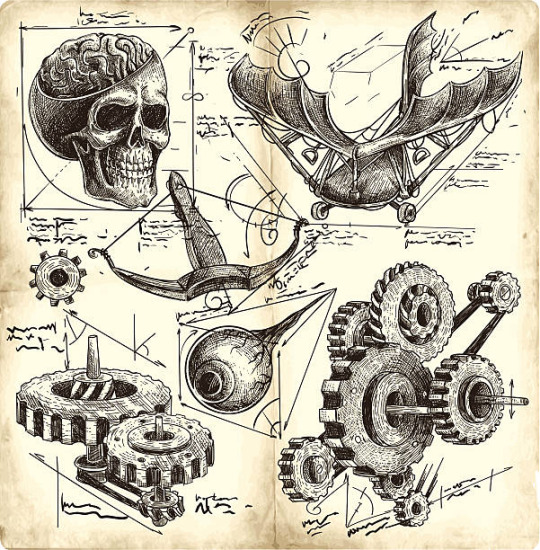
Leonardo da Vinci is known for his foresight and is considered a visionary. He, in the 15th & 16th centuries, pondered upon the possibilities of human flight and left behind diagrams and models of the helicopter, the parachute, the machine gun, the humanoid robot, the revolving bridge, the ideal city and much more. He had Ketu in Punarvasu.
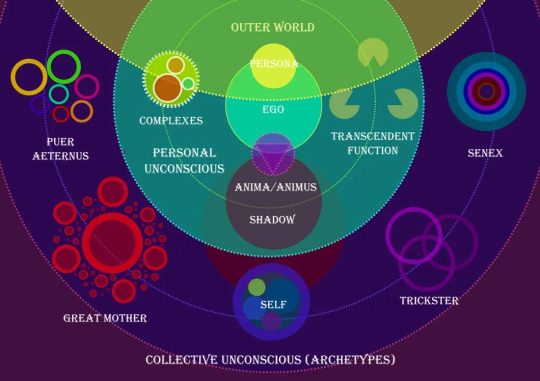
Carl Jung created some of the best-known psychological concepts, including synchronicity, archetypal phenomena, the collective unconscious, the psychological complex, and extraversion and introversion. He had Punarvasu Mercury & Venus and it explains why there was such a heavy emphasis on "darkness" vs "light" in his work (Punarvasu being "the return of the light").
He is the father of Analytical Psychology which seeks to "analyze the relationship between a person's individual consciousness and the deeper common structures which underlie them. Personal experiences both activate archetypes in the mind and give them meaning and substance for the individual. At the same time, archetypes covertly organize human experience and memory, their powerful effects becoming apparent only indirectly and in retrospect. Understanding the power of the collective unconscious can help an individual to navigate through life."
In fact, vedic astrology (Jung did use astrology as well btw) serves as a very interesting way to explore the collective unconscious and the many archetypes that are manifest in individuals possessing them.
I will make a post in the future comparing Freud & Jung and how their different astrological placements contributed to their similar but differing views.
George Orwell, who was a fierce critic of totalitarianism had Swati Rising, if you read his works, you can see how he's able to analyse the effects and consequences of the same, especially 1984 which was sooo ahead of its time in the sense that much of what was written in the book is eerily similar to what's going on in the world right now. The novel examines the role of truth and facts within societies and how they can be manipulated.
Swatis & Punarvasus are super Futuristic, as individuals or visionaries as well as in their art & work. They dominate in the surreal/scifi genre.
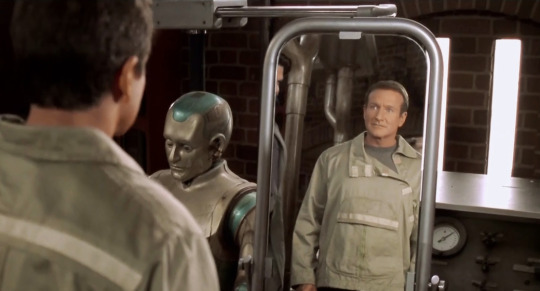
Robin Williams- Swati Rising stars as an android in Bicentennial Man which is a movie about a robot who learns how to be human. Transcending humanity is a big theme in the works of Swati natives.
On this note, I have noticed several Swati & Punarvasu natives star in movies featuring/about cloning 👀 This does not surprise me as I had already mentioned this in my Tomie post but it is fascinating how Swati & Punarvasu's ability to be many many versions of themselves is made manifest in this trope of clones.
I have to mention how both Rahu & Jupiter have a very boundless, obese energy that is hard to contain. This can be manifest negatively because its very easy for energy of this proportion to be misused and misdirected but when they're harnessed positively, these individuals are capable of envisioning change that have few/no other parallels.
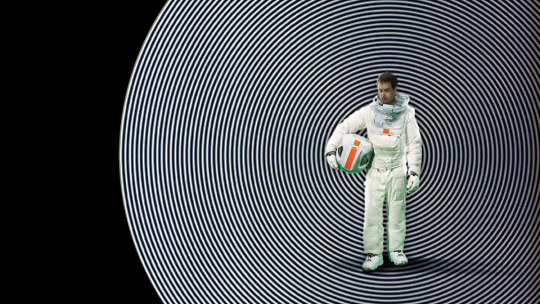
Moon (2009) is a movie that features the main character and his clones. Sam Rockwell, Swati Sun plays the main character.
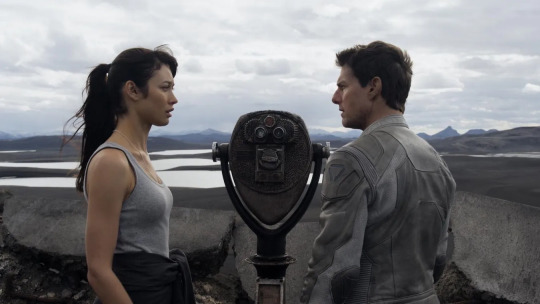
Tom Cruise, Punarvasu moon (acc to Claire Nakti) stars in Oblivion and plays a clone of himself. One version of him is good, his "clone" is evil. The battle between good & evil within oneself is a VERY Jupiterian trope (and I shall make a post solely about that in the near future).
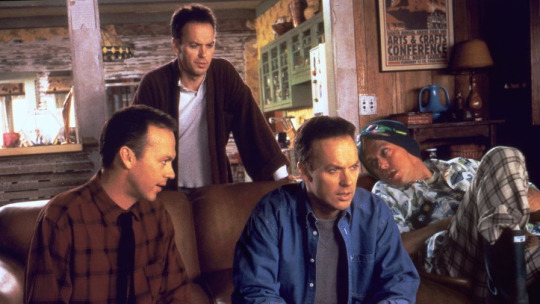
Multiplicity is a 90s scifi-comedy about a guy who clones himself so that he can do all the things he wants to do. Michael Keaton who plays the protagonist has Swati Moon
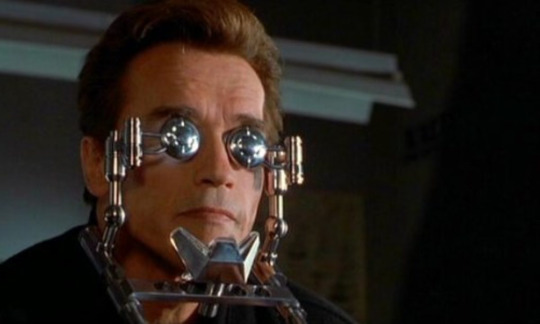
The Sixth Day is a movie starring Arnold Schwarzenegger (Punarvasu stellium) and it is about cloning. The title is a reference to the Abrahamic Genesis concept of how God created mankind on the sixth day.
This in itself is very interesting because Punarvasu is the 7th nakshatra and in the Bible, it is said "And on the seventh day God finished the work that he had done, and he rested on the seventh day from all his work that he had done. So God blessed the seventh day and made it holy because on it God rested from all the work that he had done in creation."
7 is a number that has profound spiritual meaning and is present in many religions as a figure of significance. From this verse taken from the Book of Genesis, it is interesting to note that ""7" is the culmination of creation. It is the day on which God rested because he had already created. It is not nothingness, it is the day on which everything already existed. This is a significant Punarvasu theme.
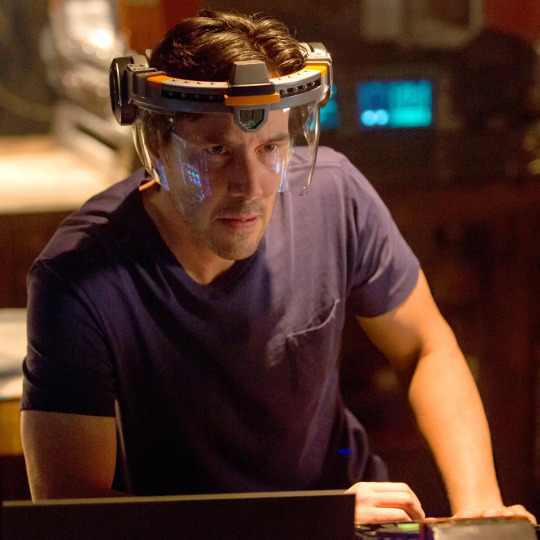
Replicas stars Keanu Reeves (Punarvasu Moon) as a neuroscientist who tries to revive his deceased family members by cloning them.
Its interesting how in these films, natives appear either as a clone or as the ones who do the cloning, furthermore connecting it back to Punarvasu's creation trope.
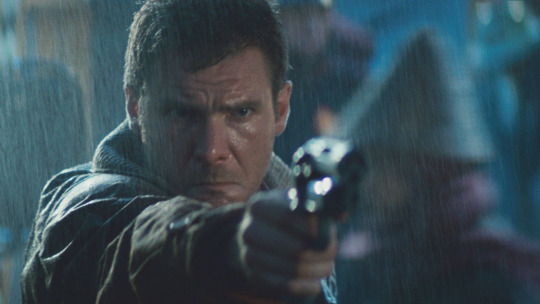
Harrison Ford, Punarvasu sun & moon stars as in and as the Blade Runner (1982) where he must "pursue and terminate four replicants who stole a ship in space and have returned to Earth to find their creator."
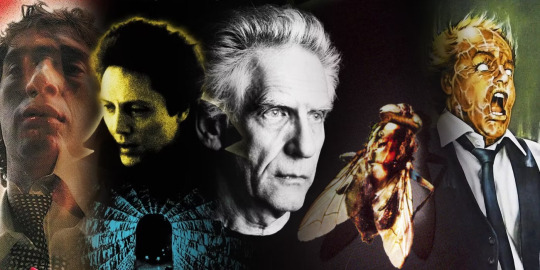
David Cronenberg is a director best known for making really weird, surreal, futuristic movies that heavily feature themes related to the nature of reality, consciousness etc
He is a Punarvasu Moon & Jupiter
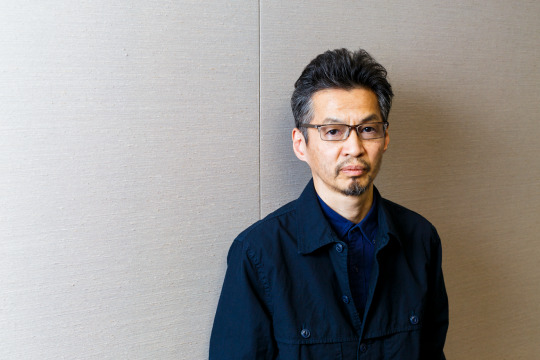
Gakuryu Ishii, Punarvasu Moon is another filmmaker who makes movies that heavily centre around truth, reality, consciousness, the future etc.
I recommend his movie Mirrored Mind which heavily deals with identity, consciousness etc (its vaguely reminiscent of Perfect Blue)
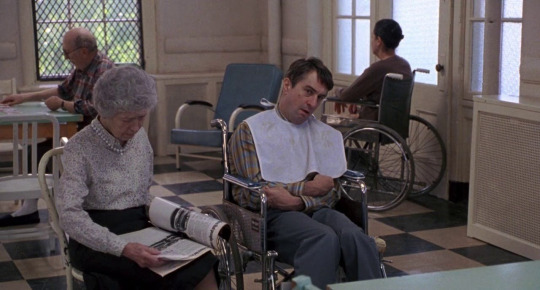
Robert de Niro Punarvasu Rising, stars in the movie Awakenings (based on a true story) as a catatonic patient who has an "awakening" before tragically going back into catatonia, Robin Williams, Swati Rising stars as the doctor who administers a drug that induces this awakening.
In Vedic philosophy, there are 3 gunas, Rajas, Tamas & Sattva.
Tamas is a state of darkness, inertia, inactivity,
Rajas is a state of energy, action, change, and movement.
Sattva is a state of harmony, balance, joy, and intelligence.
Punarvasu belongs to the Rajas guna whereas Swati belongs to Tamas guna.
Tamas can be described as a state of statis or stagnation as there is no transformation and thus no change. Punarvasu natives are prone to passivity and it is only when they face their own destructive shadow, do they emerge out of passivity to their natural state of Rajas. In this movie, Deniro's experience where he emerges from his catatonia with a desire for freedom and to live life to the fullest before eventually accepting the fact that his condition cannot be remedied inspires the Doctor played by Robin Williams to emerge out of his own shell and live life more fully.
Punarvasus are often restricted by situations beyond their control yet they are possessed by a yearning to live life to the fullest. Swatis often have unmeasured freedom and do not know how to utilize it, they are restricted by their own character.
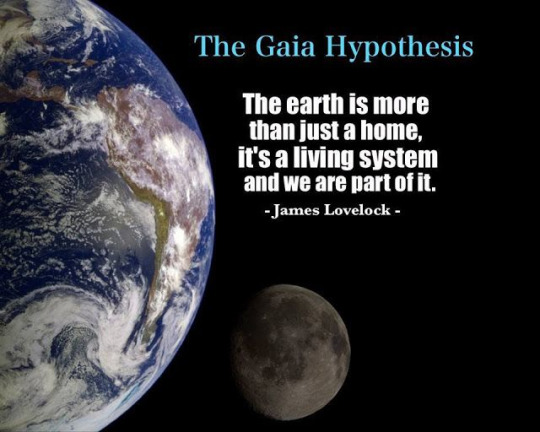
The Gaia Hypothesis proposed by James Lovelock (1972) suggests that living organisms on the planet interact with their surrounding inorganic environment to form a synergetic and self-regulating system that created, and now maintains, the climate and biochemical conditions that make life on Earth possible.
It is a holistic view, which is generally not appreciated in science that likes to favour randomness, chance or whatever instead of the innate harmony and union behind creation.
James Lovelock has Punarvasu moon & Swati rising
Lynn Margulis who co-developed this theory with him most likely has Revati Moon and I will be exploring her symbiotic view of evolution on a different post as it goes beyond the scope of this one.
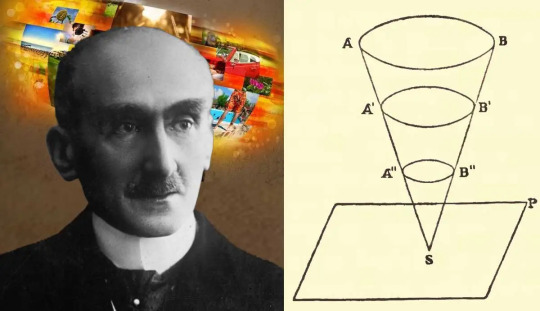
Edit: as @brundlefly333 pointed out, the French philosopher Henri Bergson (Punarvasu Moon) has a book called Creative Evolution which extrapolates that whilst "evolution of species can come from external factors "like natural selection", it most importantly (comes) from an internal impulse (a creative force). This creative force is inherently unpredictable and non-linear, leading to the emergence of novelty and complexity in living organisms over time.
I find his "Cone of Memory" (depicted above) hypothesis very fascinating.
The Cone of Memory model can be imagined as an inverted cone, with the apex representing the present moment, the base symbolizing the entirety of one’s past experiences, and the cone’s vertical axis signifying the flow of time. As the present moment progresses, the apex of the cone moves upward along the axis, continuously stretching the cone outward as it incorporates new experiences and memories into a person’s consciousness. The memories from our past experiences are layered into the cone, with the most recent memories residing closer to the apex and older memories located further down, towards the base.
Bergson’s model emphasizes the active role of individual perception, memory, and experience in shaping one’s consciousness. The human mind, as depicted by Bergson, interacts with the objective world while drawing from its accumulated memories to create individual experiences in real time. The Cone of Memory focuses on the dynamic interplay between perception, memory, and experience, hoping to account for the generation of novel understandings and interpretations of reality.
Bergson’s emphasis on experience at the personal level also has significant implications for how we understand the self. In his view, the self is not a static entity but rather a constantly developing process, shaped by the dynamic interplay of perception, memory, and experience. This more fluid conception of the self contrasts sharply with many traditional notions of a fixed, unchanging identity. It also invites us to recognize the transformative power of our own experiences and encounters in the continuous interweaving of the past and present in our temporal consciousness.
It can be summed up with this quote:
"To exist is to change, to change is to mature, to mature is to go on creating oneself endlessly"- Henri Bergson
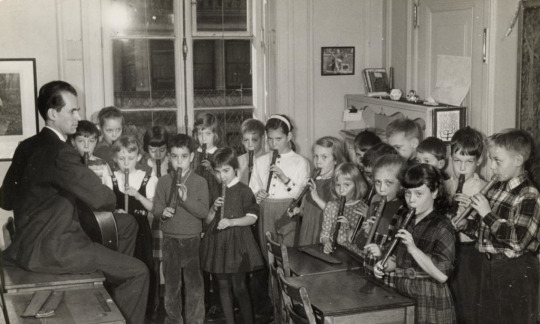
Rudolf Steiner- Ketu in Punarvasu, Swati rising
Steiner's breadth of work encompasses many fields, he pioneered modern-day organic farming, anthroposophical medicine (what we call alternate medicine including homeopathy, massages and frequency work etc rooted in the human body's ability to heal itself) invented the Waldorf education system (alternative schooling) and tried to merge science and spirituality.
All of this is vvv Punarvasu & Swati coded because its these natives who are frequently drawn to non-traditional systems of thought & experience and also merging a vast variety of techniques + being well versed in a lot of different fields etc comes down to having the inner space to hold all of it. This is literally not something most other people can do. Pursuit of knowledge can easily drain/deplete people but Punarvasu & Swati natives have a boundless thirst for knowledge and innately understand the profound truth that everything is connected.
Symbiosis, synergy, syncretism etc are all themes prominent in the works of Swati & Punarvasu natives who tend to view things as a coherent whole and not separate from one another; everything in creation exists to serve one another and exist in perfect harmony. Its not by "accident" that human beings took shape on earth where all the elements exist to continually support human life, every tiny detail is manifest in divine perfection and it helps us understand that we are a part of a larger system and that what we do affects changes at both the micro and macro level.
"Synergetics is the empirical study of systems in transformation, with an emphasis on whole system behaviours unpredicted by the behaviour of any components in isolation. R. Buckminster Fuller (1895–1983) named and pioneered the field. His two-volume work Synergetics: Explorations in the Geometry of Thinking."
Buckminster Fuller had Punarvasu sun & jupiter
I think I had made a post about how Punarvasu natives tend to make geometric art that features repetitive patterns and motifs. I thought Fuller's use of the term "Geometry of Thinking" was very Punarvasu of him.
Pls look him up and his work, its very interesting and if you have Punarvasu placements you might find things you resonate with. I dont want to make this post any longer so I'm not including more of his work although all of it really fits with the theme tbh.
Amartya Sen, the Indian economist and philosopher has Swati Sun, he is best known for his contributions to welfare economics, social choice theory, and development economics. His work incorporates the same holistic view of how everything exists in close interaction with everything else, interconnectedness as well as an all encompassing-ness are themes that dominate his work. Society affects the market, the market affects society, all of this affects interpersonal relationships, it takes a Swati/Punarvasu native to deeply embody this sentiment in their thought/work.
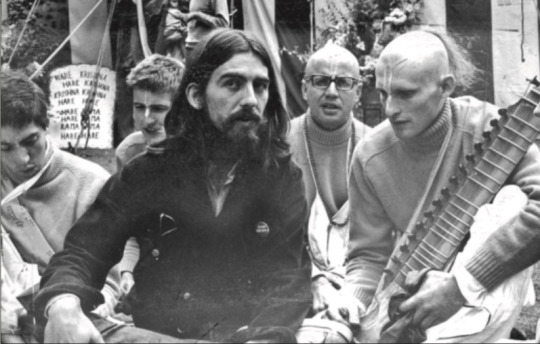
George Harrison aka the Spiritual Beatle had Swati moon, Jupiter in punarvasu amatyakaraka.
"It's being here now that's important. There's no past and there's no future. Time is a very misleading thing. All there is ever, is the now. We can gain experience from the past, but we can't relive it; and we can hope for the future, but we don't know if there is one."
This quote by him really sums it up.
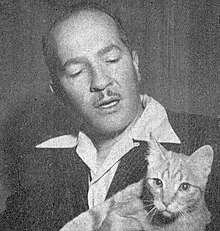
Robert A Heinlein had Punarvasu sun, jupiter and rahu
Heinlein used his science fiction as a way to explore provocative social and political ideas and to speculate how progress in science and engineering might shape the future of politics, race, religion, and sex. Within the framework of his science-fiction stories, Heinlein repeatedly addressed certain social themes: the importance of individual liberty and self-reliance, the nature of sexual relationships, the obligation individuals owe to their societies, the influence of organized religion on culture and government, and the tendency of society to repress nonconformist thought. He also speculated on the influence of space travel on human cultural practices.
This is yet another example of the interconnectedness of Punarvasu as well as the analytical nature of these natives.
I will end this post here because I've been rambling for too long but I hope this was informative!! Apologies that this was kinda science heavy and not very pop culture centric :/
#vedic astro notes#astrology observations#sidereal astrology#vedic astrology#nakshatras#astrology#astro notes#astro observations#astrology notes#astroblr#Punarvasu#swati#Jupiter#rahu#carl jung#Freud
367 notes
·
View notes
Note
What worries me is there’s no Markhelly in Dan Erickson’s original outline.I think it’s pretty safe to say it’s only there because Adam and Britt improv and they also seem very willing to do the bit when often co-stars aren’t often very enthusiastic about.But when a romance is shoe horned in it always impacts the end of the story which they say it hasn’t.Because they are pretty adamant about the ending remaining unchanged.So idk how Helly/Helena amounts to the plot in the end.Mark is the sole protagonist and I am very worried how the romance might affect Helena’s charecterization.I am very concerned where this is going.
Hi anon,
I am not particularly concerned about this for a couple of reasons.
Original outlines are just that: original outlines. From the sound of things (and I had a chat with @kestrel-of-herran over the weekend about this), it's likely that Dan's vision was more about the more philosophical/ethical/psychological and sci-fi aspects of the story that provide the scaffolding, and they then developed the human aspect within it. Basically, I think they realised that introducing a romance would drive home those points even better, raise the stakes even higher, simply because romantic love is such a quintessential part of human nature and especially in the context of such a dehumanising environment as a severed floor created for consciousnesses that exist to be purely machines for their outies (maybe a similar realisation to the one I had). So while his overall goal was not about romance, it also does not preclude a romance to now be crucial to the story and the endgame.
Dan talked about how he sees the story to be primarily about discovering one's true self, through facing pain and grief, accepting all parts of oneself, and the excitement that comes with it, and so on. So I think this is probably his vision for the story as a whole and what he talks about when he speaks of an ending. To take these characters from where we first meet them to an end where they become whole. This is not incompatible with a romance (even an endgame romance) developed subsequently, quite the opposite. And it is most definitely not incompatible with Helly/Helena being essential to the plot since she embodies that discovery of one's self perhaps even more than Mark.
Finally, I think it's clear from the interviews, from how much Mark and Helly/Helena are front and centre, from the fact that Adam knows how it ends and he is so enthusiastic about Hellyna and Mark/Helly, that this is what the story is about. Like, they're not vague or subtle about it at all. It doesn't guarantee that they will end the story in a relationship (although I think it's very possible) or alive (although this doesn't seem to be a show that is heading towards killing its main characters) but, personally, that is not a dealbreaker for me. The main thing I care about is that, no matter the endgame, the characters and their bond are not cheapened and shat upon causing everything I loved about them to be retroactively, irreparably ruined and I can no longer enjoy the story and don't want to go anywhere near it again. And idk... I am getting good vibes from this team that they care a lot about their characters and the story and are not the kind of writers that are cruel to their characters because they get off on traumatising and upsetting their audience.
ETA: I also want to add that I think (I am pretty sure) that the ending to S2 was envisioned with the possibility of the show not getting renewed/to work as a stand-alone ending. So I think that partly answers your question about whether Markhellyna/Hellyna can be relevant to the endgame (yes).
45 notes
·
View notes
Text
“Didn’t mean to make your heart Blue” || [2/…]
- OPLA! Buggy x F!Reader
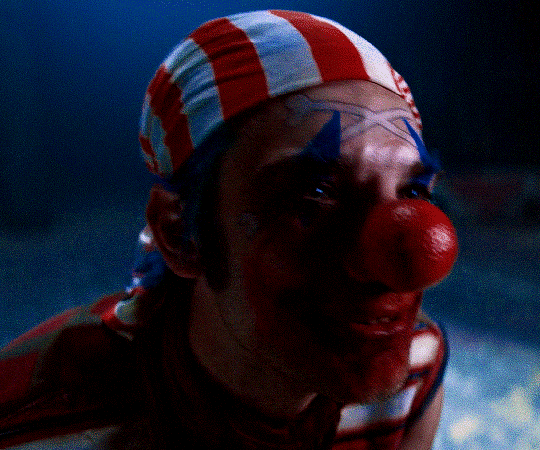
"Do-mi-ti, why not me? Why not me?"
— Mitski, "Washing Machine Heart"
Pairing: Buggy the Clown (Live Action) x F!Reader
Part 1 | Part 3 | Part 4 | Part 5 | Part 6
Summary: You were an apprentice of Gol D. Roger’s crew in your youth, long before his eventual demise. Along with the Red-Haired Shanks and Buggy, you were a formidable trio; the embodiment of a new generation of pirates yet to come. But times changed, and so did you and your friends. Years have passed since you last saw Buggy following the dispute that you thought ended your friendship. When you finally reunite with the blue-haired menace you once considered your closest friend, it’s under less than “friendly” circumstance.
Warnings: Fem!Reader, Canon Typical Violence, Slight Canon Divergence, Buggy is an asshole, The reader used to go by "Cross-Hairs" in the past, hot tension, resentment and love, flashbacks, Reader is strong AF
A/N: Buggy's behavior in this chapter kinda gives off Yandere-vibes, but he's not. He's just really desperate, and a general asshole, (and lonely).
He's dead.
Gol D. Roger, captain of the Roger pirates, your captain, is dead. Pierced through the back by the Marines like a pig for slaughter, a death unworthy for someone of his rank. He deserved to live a long life, drunk on rum, surrounded by his friends and crewmates, before being finally laid to rest in a casket and shipped off with the waves as per tradition.
As chaos ensues and all hell breaks loose, his corpse remains on the same stand where he met his end, left to roast in the warm sun. At the very least, he did not leave this world without flipping one last bird at the Marines.
His final words leave such a domino effect upon the witnesses, one that will last for years to come. Sailors, pirates, men, women, and children all head toward the vast oceans in a hurry, ships pushing off the docks at record speed as they prepare to hunt for his legacy. To claim his title for their own. A title he earned and subsequently put up for auction.
The Marines were hoping that his death would mean the end of Piracy, but as though fate itself had something else to say about it, it had the exact opposite effect.
You're not moving with the swarm of people. The race goes on, but you do not.
You're still standing in the same spot as you were when you watched the officers drive their spears through your captain's back, having ceased to function as you saw the man who practically raised you, succumb to the same fate that claims all in the end.
Even as people are pushing their way past you, shoving you in God-knows how many directions on their way to the oceans, you can't find it in you to move on your own accord.
The world has gone deafly quiet now, everyone else is gone, and you're its sole occupant now. Despite the unrest going around, and the wind that brushes against your neck, Roger's last words echo in your ears like the whispers of a ghost.
"Wealth. Fame. Power. I found everything this world has to offer. Free yourselves! Take to the seas! My treasure is yours to find!"
Someone - whether accidentally or not - thrusts against your stomach, and you take a tumble to the ground. The world finally perforates your consciousness, yet it leaves you exposed to its chaos. You attempt to stand up, but the ongoing movements from all around halt your efforts.
You raise your arms to shield your face from further damage, suffering several pairs of feet and a handful of scratches from the crowd. Nothing too bad, but you don't dare to try and get up just yet. Your initial plan is to just stay put until the storm is over.
That is, until you hear a voice calling your name from somewhere in the crowd, muffled by the ruckus, but still audible for you to make out among the many others.
"COME ON! HURRY!"
You're hastily pulled up to your feet and collide face-first into a chest. Looking up, you only manage to register Buggy's hand tightly clenched around yours in a near-painful hold as he pushes you both through the ongoing crowd.
While trying to navigate through the masses, you raise your head to gaze at his face.
Not unlike your own, his eyes are stained with tears.
------
Nothing is in its correct shape when you blink your eyes open. For starters, the room is spinning at an incredible speed, and for seconds, there is twice of everything. Two coats are hanging on the rack just on the edge of your vision, the same color and length and everything. You discover you have two pairs of hands and feet as you sit up, and at least over a dozen iron bars are separating you from the rest of the room.
In a minute or two, your sight establishes yourself. The world has become one again, but to your chagrin, you discover that the number of bars caging you remains the same.
Shaking off the dizziness and nausea that accompanies your waking, you get up to your knees and discover that, once again, you're fucking trapped. This time, it's in a metal cage hanging off the floor by a hook and chain, swinging you lightly back and forth with each fraction of movement you commit yourself to.
Exhausted from simply waking up, you clash your forehead against the bars. "Shit."
"Well, good to know that your colorful vocabulary remains the same."
You snap your eyes up to see Buggy striding into the room, and your gaze immediately narrows.
"And your eyes." His right hand dislodges itself from his wrist and hovers over to you with an outstretched finger, where it lands right in the space between your eyes. "Sharp as ever, if not even sharper. Careful, you could kill someone with those."
"Wishful thinking," you murmur indignantly and raise your hand to wave off the offending appendage. Like a fly will with sugar, it merely withdraws for a few inches before returning to the same spot.
You elect to ignore it as best as you can.
He feigns a horrified gasp at your words and clutches his chest with his remaining hand. "Such harsh words! I thought we were friends, you and I. I mean, what kind of friend would threaten the other with their life so cruelly?"
Friends? That's rich coming from him. You haven't considered him as such since the day he left. You won't even dignify that with a response, and so you merely turn your head to the side and rest your cheek against the bars.
His voice lowers a few octaves, enough for you to differentiate between the real him and the act he puts on for a performance. "Then again, what kind of 'friend' leaves the other behind?" His footsteps come closer, each one weighing heavier than the last. "What kind of 'friend' abandons the other?"
Your eye twitches, but you still refuse to look at him, much less speak to him.
"What?" the Showman farce has by now ended and been buried as he takes one last step forward. "Nothing to say? I'd thought that after twenty years, you'd be happy to see this handsome face."
As much as you want to admit that, yes, the years have done wonders on his face and he most definitely would've been categorized as 'handsome' in your dictionary, you don't.
"What do you want me to say?" You tilt your head marginally to the side so that merely one eye is aimed at him. "That it's good to see you? That I've missed you?" Even though both of those statements are true to some extent, he doesn’t need to know that.
"Well, I could go for all of the above if you insist on being cordial, but for starters, an apology might suffice enough on its own." If you weren't already looking at him, you'd think that he’s joking. He isn't. He’s as serious as a heart attack, and he’s not smiling this time. All you can think at the moment is that it's strange not to see a clown smile.
"An apology?" You withdraw the impulse to scoff. "What, exactly, do I have to apologize for?"
He doesn’t answer right away. In fact, he doesn’t do or say anything at all. You can't even hear him breathing, and it’s twice as eerie as his general demeanor. It's a foreboding omen that signifies he's on the edge of his temper like a bomb sizzling just before it goes off.
"What do you have to apologize for?" he echoes.
That's all the warnings you get before the cage rattles with enough force to knock you back against the other side of the cage. Buggy's hand curls around the iron bars with such vehemence that it almost looks like he's about to break them right off the hinges.
He leans forward until his nose barely brushes against the cold steel placed between you, his bright-blue eyes near-bloodshot with the way they glower. Even now, with the few feet between you, you find yourself almost drowning in those blue irises of his.
"You left me. You betrayed me!" he shouts loud enough for his voice to reverberate throughout the room, all thoughts of maintaining his composure thrown out the window the moment you inadvertently admitted your own cluelessness. "Just like all the others! Shanks, now I could've predicted that, but you?"
His hand dislodges yet again to point an accusatory finger at you, but it maintains a safe distance this time. Probably afraid of what you'll try to do with it if you get your hands on it.
You have to give yourself some credit. You've not lost your temper once since you ended up here. In your adolescence, you would've torn him a new one fo the trouble, but you can't be bothered this time around. You’d have thought two decades of separation would’ve led to some pent-up fury like it has done to him, but all you feel is … well, nothing.
Nothing yet, anyhow.
"What you did to me, now that was cruel. That was something I did not expect, but you did it, and for what?" The cage continues to shake as his fingers dig into the rods. This time, you observe, he’s keeping his head slightly tilted downwards, rendering you unable to detect his eyes. "For Red-Haired fucking SHANKS!"
With all the movement going on in your limited space, you’re jolted forth again like a ball and cling to the front bars with your hand positioned right above his. Even with the gloves and the short distance keeping you separated, you can feel the scorching heat emitting from him.
How long has it been since you were last this close to him? It was underneath the stars, you unexpectedly recall. You were clinging to him, crying your heart out as the death of your captain had finally been processed. He was holding you close, whispering something you could not make out at the time.
It was during a time when it was just you, him, and Shanks. The three of you, against the rest of the world, ready to live up to Gol's legacy and become the Pirates of the New Age. With Shanks’ leadership, your strength, and Buggy’s general unpredictability, nothing could stop you.
But now you're here, a captive. No longer a friend, no longer a...
It never went that far, anyhow. No use bringing it up now when it’s hardly relevant.
When Buggy’s raspy breaths slow down and his hold on the iron rods lessens, you decide to finally speak.
"You're the one who left, Buggy," you say, your words laced with such apparent apathy that no one would’ve guessed what you’re feeling. In reality, you want to scream until his ears literally pop.
Your chest constricts just to say it out loud, but you won't even stop and address the tremble that threatens to claim your voice the more you go into it. "I went with Shanks, because who else was I supposed to go with? The Roger Pirates were spread to the fucking corners of the earth, Gol D. Roger was dead, and you left. I had no one except for him. You closed that door, not me."
Silence reigns loudly upon you as you're left there, nearly breathless after your little rant despite having kept your voice even throughout it. You feel pathetic, childlike, small. People say that admitting something is the first step towards overcoming it, but you feel neither achieved or relieved of any burdens.
You just feel ... small. As small as you were the day he disappeared from your life.
Buggy doesn't say anything, his countenance empty of any tell-tale signs regarding what he might be feeling. It's almost ironic. The man who used to wear his emotions on his sleeves, the same expressive man who used to spend hours bragging about his capacities and capabilities on the Oro Jackson, has now been rendered mute like a mime instead of a jester.
His eyes find yours again after an unknown amount of time, only now, it's not just bitterness and resentment you have to salvage from them. For a second, just a brief flash of the moment, there's something else. Something vulnerable.
It goes as quickly as it came.
He shoves himself from the cage, his indecipherable gaze – now laced with both anger and regret – lingering on you before he starts pacing around the room, having calmed down from his outburst but being no less agitated by the turn of events.
"What are you talking about?" he demands, sounding a tad more curious now than accusatory. "You were already going to leave with Shanks before I booked it, I just beat you to it."
This time, it's your turn to point an accusatory finger toward him, lowering your voice just enough for him to hear you recount the most painful memory you have, save for Gol D.'s death. The memory you had spent almost two decades trying to bury deep down inside you.
"The last thing you told me was that you wished that you'd never even met me, and then you fucking left me behind to go do who the fuck knows what. Which, apparently,— " You gesture to your surroundings with a dismissive wave of your hand. "— Includes enslaving people and keeping them in cages."
"Hey, people are allowed to have side-gigs!" he retorts, almost boyishly as if you didn't just have a serious argument moments ago. "Don't judge me! You used to steal shit when we were kids, but you didn't hear me bitching about it!"
You roll your eyes. Some things don't change, that being the childish bickering, not the enslaving and caging bit. Your lip inclines upwards for just a second, and it declines just as quickly. You lean back against the other wall of your cage and heave a breath, tired of it all
"Speaking of kids," he rests his arms atop a crate to his left. "What's up with you and Rubber-Boy over there? Luffy, was it?"
Your lip drops to a scowl. Looks like the kid's Devil Fruit powers have come to light, one fruit eater to another. "What about him?"
Buggy smirks and pulls out a knife from inside his coat. He turns it playfully in his hand, balancing the sharp edge at the tip of his finger as though in deep thought. "He yours or something? 'Cause, I gotta admit, I never took you as the white-picket-fence type."
He’s joking, right?
Right?
"He's not mine.”
The look that befalls his face almost seems like … relief? He’s quick to mask it though with a half-assed smirk.
"No?" He tips his head to each side and lets the knife lie on the crate. "You sure as hell seem protective over him, and I know for a fact that not just anyone earns the favor of the legendary Cross-Hairs.” He puts a hand under his chin, feigning a motion of deep thinking. “What'd he do? Save your life? You found him in the trash? Or did you shag up with his daddy or something?"
You raise an eyebrow. "I made a promise."
At the mention of this, he promptly ceases with his ridiculous guesses and his words turn sharp. "To whom?"
"None of your fucking business." You're pretty sure that if he learns that you made that promise to none other than Shanks, he'd unleash a different kind of hell not even the death of Roger could hope to spark.
Rather than pushing the matter, he shrugs with an air of indifference. "I just find it funny, that's all." He chuckles, but his tone lacks any visible sense of comicalness. "You, one of the most notorious pirates to ever cross the East-Blue, disappeared for a decade to do what, exactly? Look after a simple-minded brat who talks shit about becoming King of the Pirates."
He snaps his attention back to you and moves closer to the cage again, crouching on his knees to gaze up at you instead. "Sorry not sorry to burst that little bubble, but that title will belong to me. Once I get the map your stretchy little runt has hidden, I will find the One Piece. I will become King. I will be known, and I will be loved."
("You were loved,") a part of you wants to tell him. The part that still lingers in your shared past. ("You were always loved.")
But you keep your mouth shut.
He perceives your silence as a sign to continue. "You know, despite everything that happened, I'm opening my heart to forgiveness, for old times’ sake."
"Forgiveness?"
He smiles, but this one, you discover, is genuine. At least, in comparison to all the other ones he's flashed you beforehand. It's a lukewarm feeling, but familiar. You're almost tempted to reach through the bars and feel his cheeks, trace the edges of his lips, and smudge away the red make-up just to know if it is real or just a figment of your imagination.
"If you convince Rubber-Boy to hand over that map of the Grand Line, I might consider opening a special spot in my crew, just for you. I know better than anyone what you're capable of. Hell, it'll be just like old times, like nothing ever changed. You and me, against the rest of the world."
Slowly, he reaches his hand up and towards you through the bars, palm open for you to take.
"Don't you miss it?" he whispers, wistfully. "I do. Save for the One Piece, it's been the one thing I've wanted more than anything else."
You blink, and a feeling settles over your chest. Not uncomfortable per se, but not kind either. Like being enveloped by a warm yet tight blanket, staving you off the cold but suffocating you all the same.
Your dream. You remember your dream. The one you thought gone forever, now seemingly resurfacing from the depths in your heart where it initially drowned. To travel and explore the seas, the three of you by each other’s sides until the very end. That’s all you’ve ever wanted.
Now, Buggy is opening up the possibility of that dream coming back to life again.
You're tempted to take his hand, feel the warmth that once held you so openly when you were younger.
You raise your hand to him ever so slightly.
"Fuck, Rubber Boy can come too for all I care.” He proceeds to add. “He's a special case, and there's nothing I appreciate more than special ones."
Your hand stops and promptly withdraws.
Buggy raises his eyebrows in shock, his fingers curling as they were about to grasp at yours only to find empty air. "What? What is it? What's wrong?"
Luffy.
You shake your head. "He won't give up. He won't give up on his dream."
"What, Rubber-Boy?" he scowls like the name itself tastes like bitter venom on his tongue. "He's just a stupid kid, he'll grow out of it. Once he sees that there's no way he would last in the Grand Line on his own, he'll get in line."
You take a deep breath, preparing for the confrontation that's about to come with your next words. "He won't, and no power or authority on this earth is ever going to be able to change that."
A flash of hurt crosses his facial features, only for a second, yet it feels like longer. Then, it stops, and all that's left is the same bitterness he showed that very day.
Snarling, Buggy pulls his hand back and gets back up on his feet. “I should’ve expected this. You never choose me!" he flares and pulls both his hands to his chest, gesturing to himself. "It's always someone els- Always someone fucking else. First Shanks, then this damn brat! Why?" He briefly pauses, as if weighing his next words. "What did they ever do that was so special that you decided to stick around for them that I didn't do?"
You’ve just about had enough of his self-pitying attitude.
"I never 'chose' Shanks!" you hiss back at him. "It was never a choice. Why was I supposed to 'choose' anyone for that matter? What made you reach the conclusion that there had to be a choice at all?!"
He parts his jaws to answer with what you can only expect to be yet another sneer when the curtains behind him parts, and a member of the troupe enters. A dark-skinned man with a Mohawk of sorts, with filed teeth resembling a shark more than a man.
"Boss, the kid ain't saying nothin' about the map." The man ("Sharptooth", you decide to call him for now) says with a deep twinge of aggravation. "We're already at nearly thirty-damn-feet, and all the little shit does is fuckin' laugh at us."
Buggy does not even turn to address the man, his attention solely at you, but you can tell he's irritated by this interruption.
"Sharptooth" turns to you, having just realized you’re here. A sinister grin spreads along his cheeks, and he licks his upper teeth lecherously. "What do we do 'bout her? Is she up on the menu yet? I'm starvin'."
You crouch down, one hand positioned between your knees like a predator ready to lunge at the slightest movement. Truth be told, despite your reputation, killing someone has never been one of life's greatest joys for you, and it's been a while since you last committed a murder. However, the years have done little to weaken you, and you're not afraid to get your hands dirty if the situation demands it.
You'll be sure to let him know first-hand that if he dares to try anything.
"No," Buggy replies, voice void of any tangible emotions. "She'll snap your neck like a twig before you can get within a foot of her." He turns to face the disappointed performer, and before the latter knows it, a severed hand clamps around his throat and dangles him above the ground with what you can only expect to be a bruising grip. "I am, on the other hand, not limited by such proximity."
The man's face begins to pale as the blood flow to his brain is cut short, but the grip does not lessen at all.
Buggy speaks like he’s having a normal conversation. "She stays here, and no one, and I mean no one, is going to touch her. Understood?" His soft say leaves no room for opposition.
You watch as "Sharptooth" struggles to form a coherent sentence as he desperately clings to the hand keeping him afloat. "Y-Yes si— Yes, Captain. W-We won't!"
With a bored swish, the hand shoves the performer back a good two feet, where he crashes to the ground and clutches his neck in search of air.
"Splendid!" Buggy attaches his wrist back and claps his hands together, his Show Man act replenished. "Now, be sure to tell the others of that little fact, and while you're at it,—" he draws his palms away from one another in a straight motion. "Add another five feet."
The crew member wastes no time shuffling from the ground and all but books it out of there.
Buggy heaves a deep and dramatic sigh, exaggeratedly slumping his shoulders, and swings back to you again.
"Supporting casts, am I right?"
You don't bother with a reply.
He takes this with a lackadaisical shrug. "Now, as much as I'd like to continue this intriguing, little tête-à-tête, I'm afraid I'm needed elsewhere. The show must go on, but I’ll come back before you know it."
It doesn't matter when he'll be back. You don't plan on waiting for him. You've already waited twenty long years, and as your temper simmers evenly under your skin, you intend to get one thing across.
"Just remember this, Buggy,"
You lean against the bars, pressed so tightly that it feels like your body is about to push through the narrow gaps. "If you do anything to the kid, anything at all, and you can consider our past six feet under. I'll come after you, and when I'm finished,—"
Fist clenched; you deliver a solid strike to the bar that rattles throughout the room to the point where it feels like even the ground is quacking from the force. Buggy jumps a few steps back in retreat, and when he looks up again, his breath halts.
Where there was once a straight bar keeping you contained, there's now a prominent curve pointing out towards him. Not nearly large enough for you to squeeze through, but it's there, nonetheless.
When you lower your fist, knuckles red but intact, you finish your warning. "— Not even your Devil-Fruit powers will manage to keep you intact."
His eyes flicker between you and the now-deformed iron bar. Unexpectedly, he only stares, neither returning a threat nor even a joke to ease the tension. He doesn’t say anything at all, and the absence of words leaves nothing up to interpretation.
Buggy knows better than anyone that you don't make half-assed threats. Never you. Once you’ve set your eyes on a target, you don’t rest. He recalls the look of pure bloodlust in your eyes from back when you were young. It was neither cruel nor sadistic, but it felt cold to witness. Ice incarnate.
A predator just following its prime instincts.
Whenever someone posed a problem to either you or your crew mates, you would counter it with a threat. It didn't matter how bold-faced it sounded, you always made sure to see it through.
As a teenager, he begrudgingly thought that it was hot as hell. You were. Watching the way your eyes would almost glower as you made good on your promises, it did things to him.
Now, even when he's on the receiving end of it, it still does.
He can't deny that the feeling hasn't diminished. For what it’s worth, it means that you’ll keep your focus on him. He’ll have your eyes, all for his own now. Those very eyes, always so sleek and ready to cut and by God, he realizes at that moment just how fucking much he’s missed them.
How much he’s missed you.
“Well,” he says as he makes his way to the exit. “I guess I’ll see you in the front row.”
#buggy the clown fanfiction#buggy the clown live action#buggy the clown x reader#buggy x reader#buggy the clown#one piece x reader#one piece live action#buggy one piece#buggy x you#buggy x female reader#buggy#buggy live action#captain buggy#one piece buggy#one piece netflix#one piece fanfiction
736 notes
·
View notes
Text

EVERYTHING YOU SEEK IS ALREADY INSIDE YOU
Hell was never a place in the afterlife. It was a control mechanism of consciousness control, engineered to break spirits from the inside out. It taught you to fear your own existence, to shrink before your own Creator, to see yourself and others through a lens soaked in shame, judgment, and exile. It planted a virus in the subconscious—the idea that you could be unworthy of life itself—and every moment lived under that shadow fed the machine of control.
When you believe eternal torment is the cost of a wrong step, obedience replaces intuition, guilt replaces innocence, and fear masquerades as love.
But the moment the mind awakens—the moment the subconscious is reprogrammed back to its original knowing—the spell fractures. You stop seeing God as a tyrant and start remembering the divine as the unseen engine pulsing through every breath you take and every dream you dare to live. You realize there is no hell to escape and no heaven to earn. Heaven and hell are states inside you. Light and darkness, salvation and damnation—all woven through your own consciousness.
Liberation is not climbing to heaven or outrunning hell. Liberation is inner alchemy: facing both forces inside you, integrating them without fear, and transcending them through wholeness.
This is the Age of Aquarius rising—the age of sovereign divinity awakening. You are not here to bow before illusions of punishment. You are here to embody the truth: everything you seek is already inside you. Logan Barone
“The inspiration you seek is already within you. Be silent and listen.” ― Rumi
16 notes
·
View notes
Text
Spirit That Denies
--In which the ghost in the machine is real, from a different timeline, and he's giving you a pop quiz. Starring: McGillis Fareed, Treize Khushrenada
@wordsandrobots in my defense, I was provoked. *cough* This fic is embryonic and intended mostly as a thought experiment;;; please excuse any wonkyness and inaccuracies :'D i've never written this boy before.
_______________________
The eerie stillness of this place, the mirror lake that served for so many centuries as a mausoleum to sleeping greatness, shatters in an eruption of steam and water.
Outside the shelter of this ancient cockpit, a battle between augmented behemoths rages. The Tekkadan attack dog against a dead man from his past, neither of whom he can strictly call a friend nor an enemy.
They do not matter. It is convenient for him that they fight one another, giving him the time he needs to grasp the reigns of destiny at last.
It hurts savagely— there is no gentle way for a foreign metallic body to complete a circuit with your spinal processes. The Alaya-Vijnana System is still a barbaric solution from a barbaric time. But with the pain is the taste of victory. It is real— and it is his.
As his involuntary spasms subside and movements become his own again, he invokes Bael’s name, its true name, exultant:
"Wake, Agnika Kaieru. It’s time."
He feels it stir, electrical patterns coalescing into the shape of a 300 year old consciousness, the knight of a bygone era who destroyed the threat of automated weapons. Soulless, mindless armor; man-killers, hoards of dragons to be slain and through their deaths win glory, cementing the right of lordship for generations. Seven great heroes, from an age of calamity, their deeds obscured by time but not forgotten. No, not forgotten!
"Come, live again! We will destroy the corruption of this stagnant world! Use me as your vessel, Agnika— I am ready!"
The wrath of battle shakes the ground beneath them, but he pays it no heed. The cockpit hums with life and a dull green glow. His chest burns with triumphant radiance; he has dreamed of this since he was first able to dream, when words on a page filled his empty shell with a soul. His feet lock in to the pedals, his fingers tighten around the antiquated steering hand-grips to assume control.
And they freeze. He watches them twitch, just beyond his command.
A soft voice, just over his shoulder… no, behind his eyes, inside his own mouth, speaks:
<< Why? >>
He wishes he could reach out and touch it, the owner of that voice, the architect of his ambitions. But this is a test— a final test, no doubt, of his worthiness to claim Bael and become the new incarnation of Gjallarhorn. He must answer. But how should he respond to something so simple?
"Agnika, I am your disciple," he intones, "everything you envisioned, I have endeavored to embody. My life has been in service to your ideals, even if I am alone in this dedication. The Seven have forgotten your truths. I will make them remember— because those truths brought me out of weakness, they taught me what was valuable in this world," he smiles, self-assured. "In this parody of Gjallarhorn, I alone understand you."
<< And what, would you say, are my truths? >>
He thinks of the words he has imprinted on his heart, and chooses their distillation:
"Strength" he says, unwavering, "Without strength there can be no change, no mobility, no justice. There is nothing to prevent systematic power from stifling those who lack power, unless strength rises to meet it. All other truths serve this one: ideals without strength mean nothing, and so you must seek strength, at all costs."
<< To what end? >>
These questions were… frustrating, not the trial of faith or the battle of wills he had been expecting. Yet it was impossible for him to fail this test. His life up until this very moment had been the test. That he was inside the cockpit of Bael now was testament to his ascendancy.
"Victory," he answers, now as though he were disappointed in the question itself, "The goal of might is always victory! Only the victorious can create change."
<< I see. >>
…How much personality was left in this decrepit neural mechanism after centuries of dormancy? Perhaps too much, he thinks, but chastises himself in the same instant. Whatever Agnika’s judgement, he would prove himself worthy as his pupil. This is his destiny.
<< McGillis Fareed. You may not pilot this Gundam. >>
He lurches in his seat, control of his body given back to him in polite denial, like a declined invitation.
"…What?"
The controls do not move when he presses them, the pedals are frozen with 300 years of rust. He screams at the immobile levers, slams his back into the artificial spinal cord that tethers him to the seat. Unbearable cymbal crashes of titan weapons ring just outside the cockpit that has refused him, dangerously close.
If he cannot move this machine, it will soon be his coffin.
"WHY, AGNIKA?"
He could weep with rage. Of all life’s betrayals, this was the one he could not stomach. After what he had given up— every kinder turn he might have taken that he had passed by with a steely heart— he would not tolerate this.
<< You do not understand me. And in this you are blameless. You are not nearly the first to have misunderstood my intentions, having sought them in isolation. That is, and has always been, my failing. >>
"No. You will let me in," he hisses, "I have burned every other precious thing to the ground for this opportunity and if I must burn you as well, then so be it. This is the dream you delivered to ME! You will not deny me!"
The lungless presence seems to sigh.
<< I admire your conviction. >>
The controls do not budge. He does not feel the awareness of an external framework compounding his own. Only the voice, in its damnable, eternal patience, remains.
Was the machine itself mocking him? Was this entire journey a farce? His existence, and everything in it, the cruelest joke imaginable, and he its punchline? Certainly he was laughing at it— high and tight as a tripwire.
"So that’s it… You’re a ghost… just a ghost… not Agnika Kaieru at all. A fake idol, to go with a fake order."
<< Neither are you are the first to accuse me of this. In more than one sense, you are correct: Agnika Kaieru was a title, not my name, and, most idols are fakes. But, you knew this already, yes? >>
He grinds his teeth, tasting iron. The fighting will reach them sooner or later— he is out of time.
…By any means necessary…
He bows his head. "In that case. Whoever you are. What do you want from me? If I am unworthy as a pilot of this suit as I am, then tell me how I achieve that worth in your eyes. I cannot turn back now."
A paternalistic sadness finds its way through the wires in his back, making his skin crawl. He wants to yank the cord out by its root. But it is not pitying him, he realizes. Whatever is inside this relic, it still feels shame.
<< I have not lied to you— I DO admire your conviction. Ambition such as yours is exactly what I would have prized in a student when I was alive, just as my ambition was prized by those who taught me. For that alone, I cannot let you access this power. Not least, for your own sake.>>
"For my sake? For my sake you’re going to get us both killed!" He shouts, slamming his hands into the seat before he can compose himself. As if to punctuate him a piece of shrapnel, the shattered tip of a sword, cracks into the back of Bael’s head, making the suit rock forward precariously in the waves.
<< …Ah. So I see. One moment. >>
McGillis gasps as the cockpit closes of its own accord. The controls move themselves, through his muscles controlled by another. Suddenly he is merely a passenger inside his own destiny, the destiny he’d come to grasp with bloody fists. Now that it has grasped him, he can no longer see where they are headed.
"No… What are you doing?"
<< Pardon the intrusion. You must not be the pilot of this suit while you intend to achieve only victory— but neither do I wish to see you die here. >>
"Then… what?"
<< There are more opportunities in this world than you have yet seen… Lessons that can only be learned when you abandon the path you have been set upon. Do not make the same mistakes I did. I would spare you from that, if I may. >>
"Wait— Wait!"
But like a shooting star they are airborne. Bael, who flew under a different name long, long ago, spreads its wings of blue flame and bursts through the vaulted white ceiling— hatching once more into a world of confusion, with a new charge in its protection.
#gundam crossover fic#drabble#You know what-- *kidnaps you from your narrative*#*undestinies your child*#get ghost-babysat idiot#i freely admit i do not know where this goes or ends!!!#MAGICAL ADVENTURES IN SPACE?? HORRIBLE PSYCHOTRAUMA? HEALING PHILOSOPHY DISCUSSIONS? PRISON??? I AM NOT IN CONTROL OF THIS PLANE ANYMORE#sprinkles a touch of Faust on there for the title because hello yes it's another fixation
12 notes
·
View notes
Text
I've just realized why The Matrix Revolutions was disappointing: we don't get to see anyone else wake up.
Think about it: Smith taking over the Matrix and assimilating all beings within it as an expression of his newfound free will, eventually becoming a nihilistic digital god. If Neo is the One, then Smith is the Zero. Surely THAT would have an impact on the millions of people still stuck in the Matrix, right? But the thing is, we never actually SEE it.
The unspoken code of the Matrix is the sort of Masquerade that the people of Zion and the Machines have, the former recognizing that many people are not yet ready to be woken up, and the latter to maintain the illusion thay this is reality, keeping humans docile. Smith abusing the Matrix to become powerful enough to where he can enter any person by replacing their consciousness should be the big event akin to Gehenna from VTM that breaks this illusion, allowing the normies stuck in the Matrix to realize that this isn't reality. It's everything the Machines feared, and it would add another layer of necessity to allowing Neo back into the Matrix for the final showdown. It could also explain the attack on Zion, in part: their main energy source is flipping out, and so in desperation, they're levying one final assault against the last remnant of resistance against them, so that they can subsequently divert all attention to fixing this problem. But we don't see any mass revelation like that, something that arguably the entire trilogy has been building up to. The Smith-ing happens all off-screen. And it's anticlimactic, to not have that moment of mass clarity amongst humanity, which I think is where the criticism of this film being an anticlimax comes from. It's not the big god-fight at the end of the film, it's that it has become only about Neo & Smith.
Likewise, there's the lack of the backstory provided in the Second Renaissance, which is arguably one of the most compelling robot apocalypse I've seen. The Machines were once the underdogs, the beings on the bottom, and they used to be able to care for humanity, allowing their supporters into their newfound Promised Land. But humanity convinced them to hate until almost all humans were exterminated during the war because love is something human, something they want to separate themselves from entirely, represented by their transition into the squid bots we see them as, hypocritically using humanity as one of their primary energy sources.
What if the Oracle explained this to Neo? We know from Revolutions thay she wants peace, but she never says WHY. This could be why: having been created to understand humans, she came to develop an empathy for them, recognizing their position as something similar to the Machines. She is the embodiment of the Machines' conscience, desiring peace out of a recognition that human and machine are inseparable, and must treat each other with equal respect to build a better world. And she explains it to hum because, although the Sexond Renaissance short says it is history that has been forgotten, it never says the Machines forgot. They always remember, and so so does she. When confronting Deus Ex Machina, perhaps they could say "We NEVER needed you!", showing their continued contempt for humanity, to which Neo can actually say, "I'm sorry." Which stuns them enough to where they consider his request, and also shows Neo's moral resilience. He has nothing left to live for now that Trinity is dead, but even then, he still has the capacity to be empathetic (furthering the old Jesus allegory going on with him). The Machines forgot they once desired a peaceful relationship with humanity, and Neo can help to remind them of that.
I think the Matrix sequels have enough going on with them to where they could work, but I think adding these two things could help make the story they tell more enjoyable. Or at least cohesive. I agree with the Wachowskis' vision, I think there just needed to be a bit more worldbuilding and less character-centric events to really stick the landing as a cathartic conclusion.
10 notes
·
View notes
Text
Thinking about Garrett and body horror
The inherent terror of learning that your body is at its core, as intrinsic as your flesh and blood, the physical embodiment of all that you hate.
His bones are false and his blood is the wrong color and his skin feels too plastic-y to the touch. Seeing through the cracks in his consciousness. The ones and zeros that make up his stream of consciousness. Becoming aware of the pop-ups in his HUD, the messages as clear as an LCD screen.
Realizing why he's never been disturbed by blood and gore, but why he's always felt strangely nauseated when looking at the wired, electronic insides of a computer; running his fingers along a shattered screen; tensed at the strained hum of an overheating system. Because that is what gore means to an android.
His body feels so foreign. It feels so wrong. It has always felt wrong, and he's never had the words to describe it, and now he does have the words. and it feels so wrong. It feels so, so wrong that it's right. And he hates it.
He hates how comfortable he feels when he thinks of his body as a machine. How a small part of him wants an LED. How he almost likes how his hand looks with his synthetic skin retracted. How nice his model number feels on his tongue, "RK600".
The discomfort in his comfort. And the discomfort in that discomfort.
And the grief.
The grief over the person he believed he was, the person he could have been: a real person.
im not okay
#garrett mason rk600#i am losing my mind#i hate him i hate him i hate him#my poor baby#my sweet boy#my sweet sweet boy#:((((#making myself sad#i crave pain#dbh oc#my ocs#dbh#detroit become human#mine#i speak
14 notes
·
View notes
Text
𝓔𝐓𝐇𝐄𝐑𝐄𝐀 dr ∯ 𓏸𓈒 ☆

soo really this is just a run down of my etherea dr.
a brief history lesson if you will (it’s not lol)
ok , first things first : this dr is heavenly inspired by the Elder Scrolls series so some elements are taken from that and with the help of chat gpt lol. soo lmk what you think !

⭒ ﹒Early ETHEREAN Era ˊ˗
- Before time there existed a the Primordial Abyss, a realm of infinite. Two opposing forces resided: Magnar, the embodiment of equilibrium and harmony, and Solunis, the embodiment of entropy and flux. From the collision of these cosmic energies emerged Aeon and Myriss. It is belived that during the birth of Aeon and Myriss also came the Nexus of Genesis where they both lived.
- The Voidborne, also known as the “first ones” was the first attempt Aeon and Myriss made to create life. The Voidborne appeared as fractured spirits with their bodies unstable and being pulled through time. Thus Aeon created Chronothos, the deity responsible for time, began his inexorable march, shaping the ebb and flow of existence into a structured continuum. This temporal lattice provided a framework upon which the spirits could inscribe their will and shape.
Together Aeon, Chronothos, and Myriss created the realm Eldari which floats in the void of Magnus which sits in the Nexus of Genesis. Along came the mortal plane called Solnaris, the planet upon which Etherea and the mortal races reside.
- Because Aeon, Chronothos, and Myriss physical shape is two powerful they could not observe Etherea closely they create the Celestial Pantheon, a council of divine beings who brings order and shaped to the world of Etherea. Each deity contributed their unique powers and gifts to the creation of the world, imbuing it with life, magic, and purpose. (more on them later)
- The Celestial Pantheon gathered to discuss the fate of Etherea. They looked upon the vast expanse of creation, seeing the beauty of the land, the sea, and the sky, but they felt that something was missing.
And so, the Celestial Pantheon along with Myriss resolved to create a new race of beings, one that would embody the virtues and aspirations of their divine creators. They gathered the elements of creation—earth, water, air, and fire—and infused them with the essence of their divine power.
From the earth, they shaped the form of man, sculpting bodies of clay and flesh with skilled hands and loving care. They breathed life into their creations, awakening them from the slumber of clay and igniting the flame of consciousness within their souls.
From the waters, they bestowed the gift of emotion and intuition, filling the hearts of humanity with empathy, compassion, and the capacity for love.
From the air, they whispered secrets of wisdom and knowledge, inspiring humanity to seek truth, to question, and to aspire to greatness.
And from the fire, they kindled the spark of creativity and passion, igniting the flame of ambition and the desire to shape their own destiny.
Thus, humanity was born, a race of mortals blessed with the divine gifts of the Celestial Pantheon. They walked the earth as children of light and darkness, bound by the threads of fate and destiny, yet free to forge their own path in the world.
- The Pantheon created different realms. From these emerge races, each originating from a distinct realm. (more on them later)
- The insidious machinations of the Void Lords, malevolent beings of darkness and chaos who coveted the power and beauty of Etherea. With twisted desires to unravel the fabric of reality and plunge the world into eternal darkness, the Void Lords sought to subjugate all life to their will. As their influence spread like a creeping shadow across Etherea, it drew the attention of the Celestial Pantheon, guardians of order and creators of the world. Sensing the impending threat, the divine beings rallied their forces and prepared for war against the encroaching darkness.
- Etherea's fracturing due to The Celestial War, the races of men experienced a gradual divergence, each fragment of the world fostering its own unique societies and cultures. No longer bound by the constraints of a unified landmass, they embarked on separate paths of development, shaped by the resources and challenges of their individual fragments.
Distance and geographical barriers naturally arose between these disparate civilizations, fostering a sense of independence and self-reliance. Communication and travel between the fragments became arduous endeavors, requiring great skill and determination to navigate the treacherous waters and rifts that divided them.
As the centuries passed, the once-shared traditions and languages of men began to evolve independently in each fragment, giving rise to a rich tapestry of dialects, customs, and belief systems. Trade and interaction between these distant civilizations became sporadic, limited to rare encounters and fleeting exchanges.
- In the aftermath of The Great War that fractured Etherea, the very fabric of reality was left in turmoil, giving rise to a phenomenon that would forever alter the world: magic. Born from the chaotic energies unleashed during the cosmic conflict, magic manifested as a potent force, suffusing the land with its ethereal power and granting mortals the ability to wield supernatural abilities.
At first, magic was wild and unpredictable, its untamed energies coursing through the fractured landscapes of Etherea like a raging storm. But as civilizations emerged and ancient knowledge was rediscovered, mortals began to study and harness the arcane arts, unlocking the secrets of magic and bending its power to their will.
end of the Early Era …

#𝓔𝐓𝐇𝐄𝐑𝐄𝐀 dr ∯ 𓏸𓈒 ☆#shifting community#reality shifting#shiftblr#shifting motivation#shifters#desired reality#fantasy dr
27 notes
·
View notes
Text
In 1926, Virginia Woolf wrote about how, when one is ill:
All day, all night the body intervenes; blunts or sharpens, colours or discolours, turns to wax in the warmth of June, hardens to tallow in the murk of February. The creature within can only gaze through the pane – smudged or rosy; it cannot separate off from the body like the sheath of a knife or the pod of a pea for a single instant; it must go through the whole unending procession of changes, heat and cold, comfort and discomfort, hunger and satisfaction, health and illness, until there comes the inevitable catastrophe.
Woolf knew well about bodily interventions, suffering as she did from a range of symptoms pertaining to what today we call bipolar disorder. Yet the body intervenes constantly, whether one is ill or not. It is the mode of intervention that conditions how well, or unwell, we feel. A state of wellbeing is one in which we do not need to think about our embodied organism in any way other than the sensorial pleasures it affords, where we are immersed within our environment, engaged in an activity, involved with others. But one of physical or emotional pain affects the very foundation on which the sense of self we otherwise take for granted rests: what we feel ourselves to be can be upended. When this happens, we may realise that what we feel ourselves to be is in fact constructed. How we exist as embodied selves is a highly complex business involving the brain and body engaged in constant interaction.
Over the past few years, scientists working in neuroscience and psychology have been listening in on these brain-body interactions – in health and illness – and analysing how they constitute the always embodied self. They have been studying the sense of the body from within, which is called interoception. It is a term you will be hearing increasingly. This research is dismantling the pillars of a belief system that has long endured within those fields – as well as in the popular imagination – that the brain is an information-processing machine that can be understood apart from the rest of the body, as if our conscious, reasoning self were the output of a disembodied brain, and as if we were not fully biological creatures. This shift within the mind sciences is game-changing, and merits attention. Yet perhaps because we are in its midst, even its actors might not be fully aware of its historical and philosophical significance – and of its potential cultural and clinical implications. The time has come to take stock of the revolution under way.
Since the publication in 1994 of his first widely read book, Descartes’ Error (followed by four others), which showed how embodied emotional processes are integrated into rational ones, Antonio Damasio has been the most visible and influential neuroscientist to develop this reconception. Since then, research into the embodied sense of self has accelerated. And now a new generation of scientists is building on the insights first elaborated by Damasio. Over the past decade, there has been a six-fold increase in publications on interoception. Questions about the self – self-consciousness and bodily consciousness, our sense of body ownership, and agency – once the exclusive domain of philosophy, can now be investigated empirically. The emerging results have the power to transform our vision of what we are, as well as ground in scientific detail what we may intuitively feel about ourselves. They can provide insights into what it is that may be breaking down when the always embodied sense of self is disrupted, when that window pane is smudged. This is particularly important in understanding neurological and psychiatric disorders – psychotic events and schizophrenia, as well as autism, attention disorders, dyspraxias, somatoform disorders, body image and emotional-processing disorders such as anorexia, alexithymia (a difficulty in identifying or acting upon felt emotions) and more.
Interoception consists in the perception and integration of all signals from within our body, whether we attend to them or not. These include autonomic, hormonal, visceral and immunological functions: breathing, blood pressure, cardiac signals, temperature, digestion and elimination, thirst and hunger, sexual arousal, affective touch, itches, pleasure and pain. Interoception therefore lies at the core of our very sense of self: physiology and mental life are dynamically coupled. The central and autonomic nervous systems act on each other, higher cognition and emotional states interacting constantly. We sense, monitor and adapt ourselves to the situations we find ourselves in, often without our realising it – homeostatic processes thanks to which we physiologically adjust to the changing environment, and to which interoception corresponds.
The neurophysiologist Charles Sherrington was the first to use the term ‘interoceptive’, as long ago as 1906. He used it to refer to the sense of our own viscera (today’s visceroception). The term homeostasis was coined in 1926 – the year in which Woolf published her essay – on the back of the concept of ‘milieu intérieur’ (‘interior milieu’) that the biologist Claude Bernard had first described in the mid-19th century. As the historian Stefanos Geroulanos and the anthropologist Todd Meyers have recounted on Aeon in light of their book on the topic, it emerged following the carnage of the First World War, which had led physiologists and clinicians to reconfigure their understanding of the body as ‘an organism that organises itself’, as ‘an integral whole’. Damasio wrote in his book Self Comes to Mind (2010) that though the principles of homeostasis ‘are applied daily in general biology and medicine, their deeper significance in terms of neurobiology and psychology has not been appreciated’. But now, just a few years later, they are both appreciated and far better understood.
It is in relation to others that we acquire a sense of self, which develops in this embodied interoceptive way from infancy
The meaning of interoception expanded after the neuroscientist A D Craig, nearly a century after Sherrington, revised it to encapsulate what he termed ‘a sense of the physiological condition of the entire body’: these translate as ‘“feelings” from the body that provide a sense of [our] physical condition and underlie mood and emotional state’. Emotional feelings are distinct from emotions, and they are ‘mental experiences of body states’, as Damasio had advanced with his somatic marker hypothesis – summarised by Craig as ‘the subjective process of feeling emotions’, which recruits brain regions involved in homeostastic regulation. These feelings, ‘grounded in the body itself’, are crucial to our ability to make decisions. We don’t merely think through our decisions, including those that seem most rational, such as those concerning finances: we experience feelings about their possible outcomes that determine how we act – and if the brain areas involved in the processing of emotional feelings are damaged, our ability to make decisions is impaired. Craig identified the interoceptive pathways that provide a cortical image of homeostatic processes from all the organs, and which translate as feelings when brought to consciousness. As detailed in How Do You Feel? An Interoceptive Moment with Your Neurobiological Self (2014), he and his team individuated projections to the brainstem of neurons in the spinal cord called lamina I: these provide to the autonomic nervous system, or ANS, input about the ‘mechanical, thermal, chemical, metabolic and hormonal status of skin, muscle, joints, teeth and viscera’ from small-diameter nerves throughout the organism’s tissues. It is from these lamina I projections to brainstem that ‘sensory channels’ ascend to areas of the thalamus, and from there to a brain area called insula, the ‘interoceptive cortex’.
In contrast to interoception, the notion of proprioception is more familiar to most of us – the sense of our dynamic, musculoskeletal body in space. It is how, for example, I know where my arm is when I wake up in the dark. It is distinct from interoception, but functionally and anatomically connected to it, as is also the case for exteroception, the sensory perception of the outside world. These senses can be manipulated, as has been done to great effect in the much replicated Rubber Hand Illusion (RHI) first conducted 21 years ago, where one sees a rubber hand being stroked synchronously with one’s own hand – itself unseen – with the resulting sense that the rubber hand is one’s own, an effect dramatically demonstrated when the experimenter hits the rubber hand with a hammer and the subject almost invariably recoils as if the hand belonged to him or her. The RHI has served research into the fundamental sense of body ownership and the related sense of agency – the sense we normally take for granted that my leg, say, is mine, or that I am moving my own arm. Complex processes enable this sense to develop and be maintained, or, as can be the case in somatosensory and sensorimotor pathologies, disturbed. The RHI, and related experiments triggering a full-body illusion show that ‘multisensory integration can update the mental representation of one’s body’ and that exteroception can influence self-awareness, as reports the psychologist Manos Tsakiris, whose research within these areas has been yielding important insights.
But, as he and his team have found, this induced change in conscious body ownership results also in nonconscious changes in the physiological regulation of the self – that is, in interoception. The anterior insula is involved in both these exteroceptive and interoceptive processes, resulting in how we feel that our body is oneself and that the self remains unified and stable amid exteroceptive inputs. Moreover, it has been shown to be activated during both interoceptive and emotional experience, and also to be involved in the distinction of self and other. This in turn bears on the related capacity for empathy – with consequences for racial bias that Tsakiris has recounted here on Aeon, in a finding by his team that throws light on the neurobiology underpinning our social and political emotions. Other brain areas involved in the bodily self-consciousness arising out of the processing of multisensory signals are the fronto-parietal and temporo-parietal regions, as reported by the cognitive neuroscientists Olaf Blanke and Andrea Serino, who perform key research on how multisensory perception gives rise to the embodied, spatially located, self-conscious subject of experience that we each are (with eventual applications to prosthetic limbs).
However crucial a finding is the involvement of these areas, and of the insula in particular, in the formation and maintenance of a core selfhood, it is the interactions between brain and body that are the centre of our story. The body sends signals to the brain, and vice versa, in a constant feedback loop that involves the ANS acting in response to external inputs and interoceptive states, enabling and disabling our various states of arousal and fight or flight reactions. In this way, ANS serves homeostatic adjustments. Recently, the notion of allostasis has been gaining ground in accounting for these adjustments: where homeostasis refers to a stable condition, allostasis refers to the process that the organism engages in to achieve stability, ‘the regulation of bodily states through change’, as Tsakiris and the neuroscientist Anil Seth define it. So for instance, one homeostatic imperative is to remain within a specific temperature range: we would die if we were unable to anticipate how environmental temperature influences body temperature, and so to adjust our actions accordingly, dive into the cool sea when the sun is baking, say. Allostasis is this anticipatory adjustment – what ‘enables the organism to proactively prepare for such disturbances before they occur’, writes the philosopher Jakob Hohwy with Andrew Corcoran. The same process applies to all basic bodily functions. We need to get hungry before we faint, thirsty before we get dehydrated, and so on.
These complex interoceptive processes are happening all the time, whether we are aware of them or not. They are modulated by the ANS, ensuring constant adjustments as well as basic survival. In cases of stress, these evolved responses of the ANS can go into overdrive, affecting gut function and vascular health, triggering the various immune and inflammatory responses that result in illness. Investigations regarding this all-important brain-gut interoceptive pathway are ongoing. But the equally all-important brain-heart connection has been particularly crucial to our understanding of interoception, because of the ease in performing heartbeat detection tasks to test individual interoceptive ability otherwise challenging to measure precisely because it is the stuff of our subjective experience. The neuroscientist Catherine Tallon-Baudry has hypothesised a ‘neural subjective frame’, connected to homeostatic regulation, necessary to subjective, perceptual consciousness, which depends on ‘how the brain registers information on the heart’. Important experiments have been conducted, most notably by the neuroscientists Sarah Garfinkel and Hugo Critchley, that show how emotions are modulated in synchrony with cardiac rhythms. Emotional self-knowledge is a multilayered affair: Garfinkel and Critchley have also identified how interoceptive accuracy, sensitivity and awareness are distinct from each other, reflecting respectively the ability to detect one’s heartbeats, the evaluation of one’s own ability to do so, and one’s ‘meta’-ability to gauge one’s own awareness. We all differ in these abilities, and in our corresponding sensitivity to the ongoings of our body. These exquisite distinctions between levels of self-awareness translate into pain threshold, anxiety level and so on – into our ability to experience feelings, to have a sense of what they correspond to, to track and modulate them, or not.
These abilities even translate as character traits. So for instance, people with a higher interoceptive accuracy – that is, a greater ability to monitor their own internal states, identified by heartbeat detection tasks – are less prone to be taken in by the RHI than those on the lower end of the scale, Tsakiris and colleagues have found. This means that their self is more stable, and their capacity for empathy higher: as Tsakiris and the psychologist Clare Palmer report, ‘interoceptive processing acts to stabilise the model of our self’, so we can ‘attribute emotional and mental states to the self or to others without blurring the distinction between “self” and “other”’. This matters hugely in our day-to-day lives. In a major review article in Neuropsychoanalysis, the psychologist Aikaterini Fotopoulou – who studies in particular the centrality of affective touch in interoceptive processing and emotional development – and Tsakiris argue that the self is shaped from early infancy – when one is entirely dependent on the carer for homeostatic regulation and hence survival – by embodied interactions with carers that centrally include affective touch. This confirms insights from psychoanalysis: affect is ‘the background of all subjective, conscious experience’, they write. Our capacity to modulate affect begins with the carer attending to the infant’s embodied needs. Out of the processing of sensorimotor signals initially integrated into a basic, minimal or core self arise what they call ‘embodied mentalisations’ that progressively lead to our ability to form a boundary between self and other – a process that cannot happen in isolation. It is necessarily in relation to others that we acquire a sense of self, which develops in this embodied interoceptive way from infancy on. We sustain a constant sense of selfhood in dynamic relation to and distinction from others, and, in turn, our ability to form a boundary between self and other is a function of our ability to feel our embodied selves from within – this is the important novelty of their claim. An unformed or badly formed boundary can translate into psychiatric pathologies.
Our brains serve our bodies, rather than the obverse – a liberating idea
This picture integrates a useful model from artificial intelligence, principally developed by the influential neuroscientist Karl Friston, called Predictive Coding, which is increasingly widespread in accounting persuasively for interoceptive and homeostatic/allostatic processes, and for psychopathologies, including depression. It reconceives the brain as a ‘statistical organ’ that makes predictions about sensory information on the basis of previous instances. It ‘generates explanations for the stimuli it encounters’, Friston writes with Anil Seth, ‘in terms of hypotheses that are tested against sensory evidence’ from our visceral sensations. The actions we undertake in response to interoceptive signals – that is, the allostatic regulation that our homeostatic needs impel us to engage in – serve to reduce prediction errors with regard to our expectation of environmental inputs. In this way, our present is made of a constant projection into the future out of the past. So, as Fotopoulou and Tsakiris write, an infant will ‘progressively build generative models regarding the possible causes of their sensory states in the external world’. The brain predicts the probability of an embodied feeling state occurring as a result of an input – ‘embodied mentalisation’, in their coinage. This physiological, homeostatic reaction turns into the ‘psychological feelings’ they call ‘mentalisation’ and that form the core of the infant’s minimal self. The stability of the self in an always changing environment, Tsakiris and Seth have argued, is ensured by our engaging in allostatic prediction. This stability is never given: our constantly revised engagement with the world is a dynamic process.
In Self Comes to Mind, Damasio argues that ‘the body is a foundation of the conscious mind’: our brains serve our bodies, rather than the obverse – a seemingly provocative, but profoundly liberating idea that arises out of the oft-forgotten fact that life began without nervous systems. Our inherently homeostatic selves are on a continuum with homeostatically governed single cells and bacteria. As he writes, ‘the special kind of mental images of the body produced in body-mapping structures, constitute the protoself, which foreshadows the self to be’ – and eventually culture, art and meaning, as he has also continued exploring in his most recent book, The Strange Order of Things: Life, Feeling, and the Making of Cultures. The structures responsible for this, as Craig showed too, are in the evolutionarily ancient upper brain stem, below more recent cortical structures, ‘attached to the parts of the body that bombard the brain with their signals’, forming a ‘resonant loop’ as somatic markers. That these processes begin with homeostasis shows how deeply continuous our very consciousness is with the most primitive fabric of life. It is a potent rebuttal to René Descartes. And as Tsakiris has put it: ‘By grounding the self in the body, psychology could, at last, overcome Cartesianism and make the bodily self the starting point for a science of the self.’ We are indeed beyond the starting point now.
This shift away from Cartesianism – let us call it the interoceptive turn – has a long history within Western thought, at the crossroads of philosophy, medicine and psychology. We may begin when there developed over the 17th century mechanistic and corpuscularian models of nature – attempts at forging a new scientific method to re-describe matter, motion and living bodies. These freed natural philosophy from the Aristotelian strictures that had prevailed for close to 2,000 years and had ensured the mind-body, human-animal continuum. Descartes is infamous for loosening the connection of matter and mind. His ambition to replace the Aristotelian system with his own mechanistic model was broadly successful within philosophy – and later within medicine. Echoing St Augustine’s idea that the very existence of thought presupposed a disembodied, thinking self, Descartes performed the introspective turn that we are outgrowing – theologically locking himself into a system that required the conscious mind to pertain to an immaterial, immortal soul, a ‘thinking thing’ separate from the realm of ‘extended’ physical things. And he thereby sundered the continuum of higher, self-conscious thought with the other functions of all living beings, denying beasts any sort of mindedness. There were alternatives to this substance dualism – and he himself accepted that mind and body do interact, in emotional experience. Many physicians, attuned to the realities of ailing patients, adopted Gassendism, an adaptation of ancient atomism and Epicureanism to Christianity, which maintained the continuum of nature. Over the 18th century, vitalists battled against mechanism in philosophy and medicine, arguing for the inherence of soul in body. There were attempts from then on at a psychosomatic medicine. As materialism rose along with secularism, the notion of a separate, immaterial soul lost its function.
But it took a while for the empirical study of the embodied mind to become enmeshed with the philosophical study of knowledge and self. Realms of enquiry remained divided until the birth of scientific psychology, in the second half of the 1800s, when modern neurology and psychiatry took shape along with growing knowledge of the anatomy and physiology of the brain and nervous system. Freud himself specialised in neurology when the discipline was new, before realising that the neurobiology of his day would be unable to yield the secrets of mind. He eventually posited an unconscious field of mental action, often somatised – as in the case of hysteria, today’s somatoform disorder – but accessible through talk, creating psychoanalysis. The notion of a scientific psychology was coined by his older contemporary Wilhelm Wundt, who elaborated an introspective ‘experimental psychology’ to build a theory that would account for subjectivity. However, what first kickstarted a quarter-century ago the perspectival shift that has led to where we are today is the resurgence of William James’s scientific psychology, as given in his Principles of Psychology of 1890 and in his 1884 article on emotions – mainly his notion that emotions are the product of the body’s autonomic response, only thereafter translated as behaviour and experienced as feelings, and that consciousness is a continuous ‘stream’ of embodied experiences. (It is the very stream that formed the core of Woolf’s writing technique.)
Western medicine mechanistically chops up the body and leaves patients confused about the nature of their ailments
Until then, philosophy had remained largely disengaged from empirical investigation (in contrast to early modern practices), while the belief prevailed within cognitive science that our brain might ‘just’ be a machine that computes information, performing functions that could be studied irrespective of the biological structures upon which they operate. It was a transposition of mind-body to brain-body dualism – as if biology were incidental to the higher activities of an ultimately disembodied mind. This functionalist focus on the algorithmic operations of cognition had followed upon behavioural psychology, which, partly in reaction to Wundt’s introspective psychology and in an extension of Cartesianism, posited that behaviour was the outcome of reflex-like responses to environmental stimuli rather than manifestations of emotionally rich intentions. Cognitive science outgrew the behaviourist model from the 1950s on, absorbing neuroscience and evolutionary theory into its accounts of individual and social psychology, and elaborating scientific protocols that put the mind back behind the behaviour. The analogy of the brain with a computer, however, remained powerful.
Computational neuroscience continues to grow. Friston’s Predictive Coding theory is one of its fruits. But the hold of ‘strong AI’ has loosened since the 1990s – just as Damasio’s insights into embodied emotions and the emotive self started putting the whole organism together again. By then, the body had also become a popular theme in the humanities and social sciences. And the centrality of the body to the mind began around that time to be analysed within an anti-cognitivist neurophilosophy first made popular by Francisco Varela, which combined an outgrowth of the phenomenology of Maurice Merleau-Ponty with Buddhism: for ‘enactivism’ and related approaches, cognition and the sense of self depend upon a body endowed with sensorimotor capacities embedded within the world. The philosophers Shaun Gallagher or Dan Zahavi work within this lineage, and the hybridisation of disciplines has enabled philosophers such as Frédérique de Vignemont to analyse neuroscientific data, and, conversely, for neuroscientists to work with philosophers. The minds of animals are studied on a continuum with ours. The remnants of substance dualism endure in AI and some everyday thought habits. But we can no longer escape the reality of our biology, as scientists are showing us, a fraction of whose work I have presented here. And there is much more ahead.
Yet insights from theory have always been hard to apply straightaway, if at all, to the clinical realm. There is today an increasing dissatisfaction with mainstream Western medicine, which mechanistically chops up the body and leaves patients confused about the nature of their ailments, and concurrently a growing market for alternatives that take holism seriously. (In Germany alone, psychosomatic medicine is an institutionally established clinical field.) In parallel, practices such as yoga continue to grow worldwide. The science of embodiment might provide eventual protocols for the testing of such holistic treatments and practices, to help target them to particular conditions, especially psychiatric and neurological. Biofeedback, the use of sensory stimuli, physical therapy, etc, have been shown to help reduce the anxiety caused by the combination of high interoceptive awareness and alexithymia (as Fotopoulou and colleagues have shown), and often found in autism, heighten interoceptive awareness in anorexia and attention disorders – or lower it in depression and somatoform disorders, where, as the neuroscientist Georg Northoff has argued in his book Neuro-Philosophy and the Healthy Mind (2016), one’s body becomes the predominating content in awareness, at the expense of the environment. And just as mindfulness has become a widespread tool, which the psychologist Norman Farb has studied in relation to interoception, so the practice of yoga, which powerfully modulates interoceptive awareness, could benefit from inputs from the scientists investigating embodiment – and vice versa.
The interoceptive turn is a historical step to the other side of our mind’s looking glass, into the heart of our complex organism, reconciling us to our mortal embodiment, forcing us to consider our mental makeup with humility as just one aspect of biology – a far cry from the posthumanist future that Yuval Noah Harari and others warn us about. It does not dissolve the mystery of how we are able to think and speak sophisticated thoughts, create art and meaning, or indeed investigate self and world: science does not replace experience, and though it is indispensable to serious thought about human nature, and to the advancement of clinical care, so is a humanist eye on what the best of science can tell us about ourselves. Yet this new picture has a transformative power. It can help understand, to an extent, how we relate to each other as embodied beings, how we feel at each moment of our lives, why Woolf’s ‘creature within’ feels what she does when unwell. It can help us understand each other in our animal nature so as to regain harmony with nature, and in our inherently social nature so as to regain harmony with each other – and to maintain our psychophysical integrity in the face of the ‘procession of changes’ that Woolf writes of. No window pane into the self is perfectly transparent. But we are clearing up some smudges.
#Interoception#the inner#articles#Aeon#philosophy#physiology#neuroscience#cognition and intelligence#science of mind#Body Alive#Structural Integration Atlanta
4 notes
·
View notes
Text
I'm trying to understand the love for Clara Oswald, so I am rewatching her episodes... :) I'm not a hater, after all lol...
I also just want to re-hash my memory on The Great Intelligence, because I HAD this nagging theory about Ruby Sunday and her "snow" ability, which is connected to my theory that Ruby is a human embodiment of the TARDIS, which is also connected to my theory about why the "old Gods" of Classic Who are coming back in relation to The Flesh + Nestene Consciousness, which circles back to my theory on the return of the Toymaker's connection to the Timeless Child Arc (aka origin of the Doctor).
ANYWAY... back to Clara :)
I think the set-up between Clara and Eleven was well-written actually!!! I always did prefer her "incarnation" as Oswin Oswald over her "21st century existence". I even hoped she would ORIGINALLY be a scientist from the far future, and THAT was one of the reasons why I was initially disappointed regarding her character-trajectory.
I can understand "The Hybrid" concept from an interpersonal viewpoint. I can appreciate it as a metaphor for a toxic, co-dependent relationship only IF the audience is willing to shed light on the Doctor's history with his OTHER human companions.
And yes, it is inevitable that the Doctor as a "whole entity" (not necessarily just Twelve) would give back Clara Oswald the Gift of Eternal Life, as she did end up DEAD because of her carelessness and over-confidence due to Twelve enabling her when he tried to bring back Danny from "hell" per Clara's request.
These are a bunch of domino effects that resulted from Clara jumping into his time stream... Perhaps, Twelve's "duty of care" stemmed from the fact that he wouldn't exist without Clara. Literally. She saved him across all his timelines from the Great Intelligence (dun dun dun)-- he'll be back, mark my words. Perhaps, that was a metaphor for co-dependence. I mean, duh, it is!
She saves him from "dying", and he in return stops her from "growing" as a person.
I would have probably been satisfied with Clara if her story had ended when she jumped into the Doctor's time-stream, but alas- we wouldn't have Missy if that was the case. AND WE ALL LOVE MISSY <3
Might I also remark that it is *GOOD* writing that they also included "Me"/Ashildr (code: warrior) in The Hybrid plot, because the Doctor made this Viking girl immortal and "less human", and in a parallel circumstance he did the same for Clara... He quite literally stopped Clara's death, the same way Clara stopped HIS many deaths.
So yeah, ok, Clara didn't deserve her own TARDIS (imo). But seeing as she's "stuck" with Me (who I personally interpret as Clara's very own "dark" Doctor replacement; hence the poetic name "Me"), I think having her own TARDIS is more of a KARMA-- like, a traumatic time-machine that takes you anywhere BUT home?
In hindsight, I was bitter about the fact that Clara Oswald got her own TARDIS because it renders all the other human companions "unimportant"? Now that I'm older, I'm realizing that Clara "mirroring" the Doctor from a perspective of a broken heart (per se) can definitely be narrated from a perspective of:
"WOW THEY REALLY WERE TOXIC FOR EACH OTHER BECAUSE THEY BOTH WANTED TO AVOID THE INEVITABILITY OF DEATH."
If I decode The Hybrid in terms of human relationship, I would say that they stopped each other from GROWING. Because "death" = rebirth. And without death, life becomes stagnant.
#doctor who#drwho#twelfth doctor#Clara oswald#the great intelligence#dw#the hybrid#I'm emotional because I miss my mom and i'm scared I'm going to lose my dad soon#anywaaaay I understand you Clara#I understand how toxic you are Clara (I see her as my ex-bf who refuses to “die”/grow up) and I see myself as Twelve who enabled her
13 notes
·
View notes
Text
the late modern English word "heyziri" is of unknown meaning. some linguists believe it was intended to get the attention of the "machine-spirit" believed to dwell within an artificial intelligence. others note similarity to the "haze", the collective consciousness that embodied all knowledge.
85 notes
·
View notes